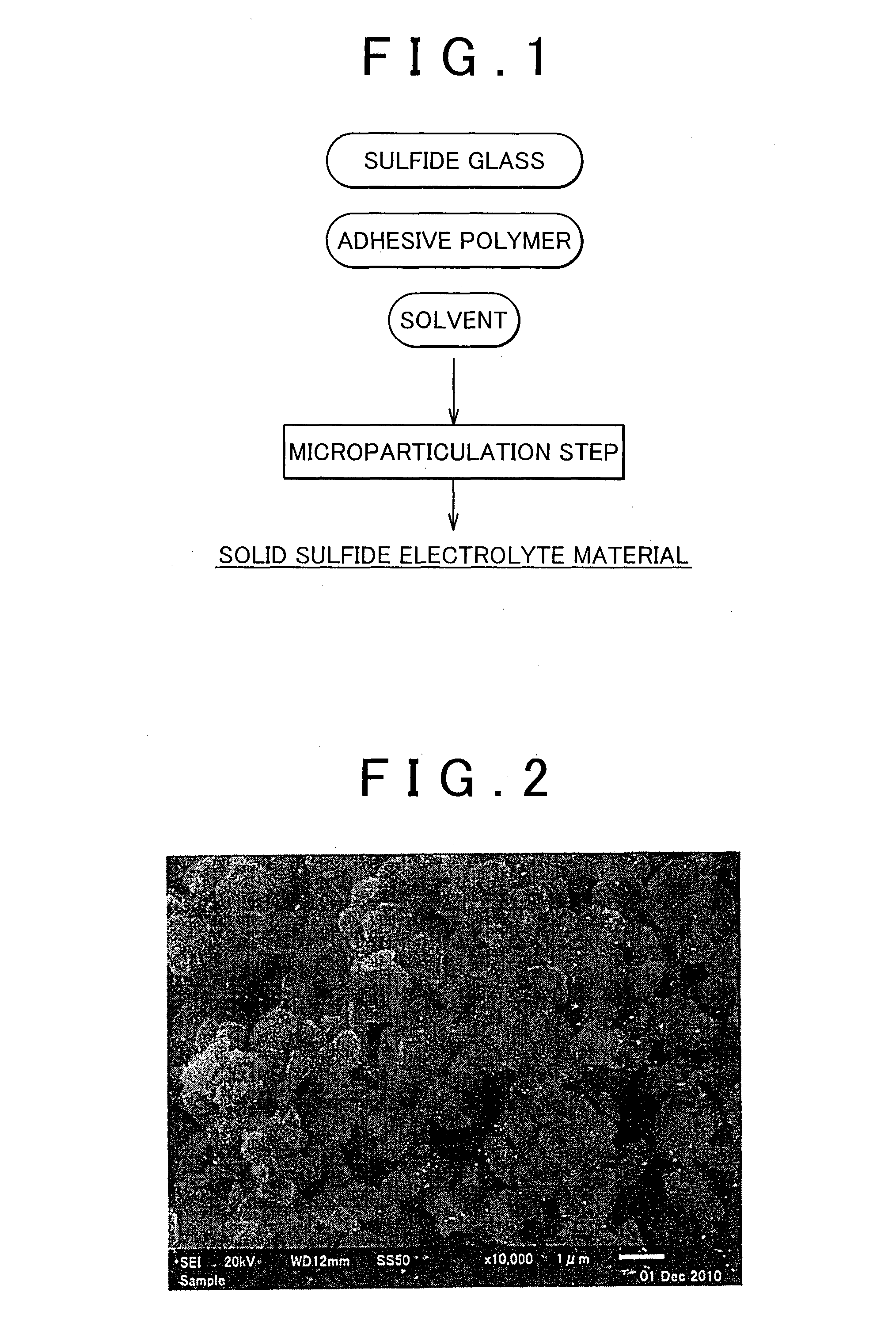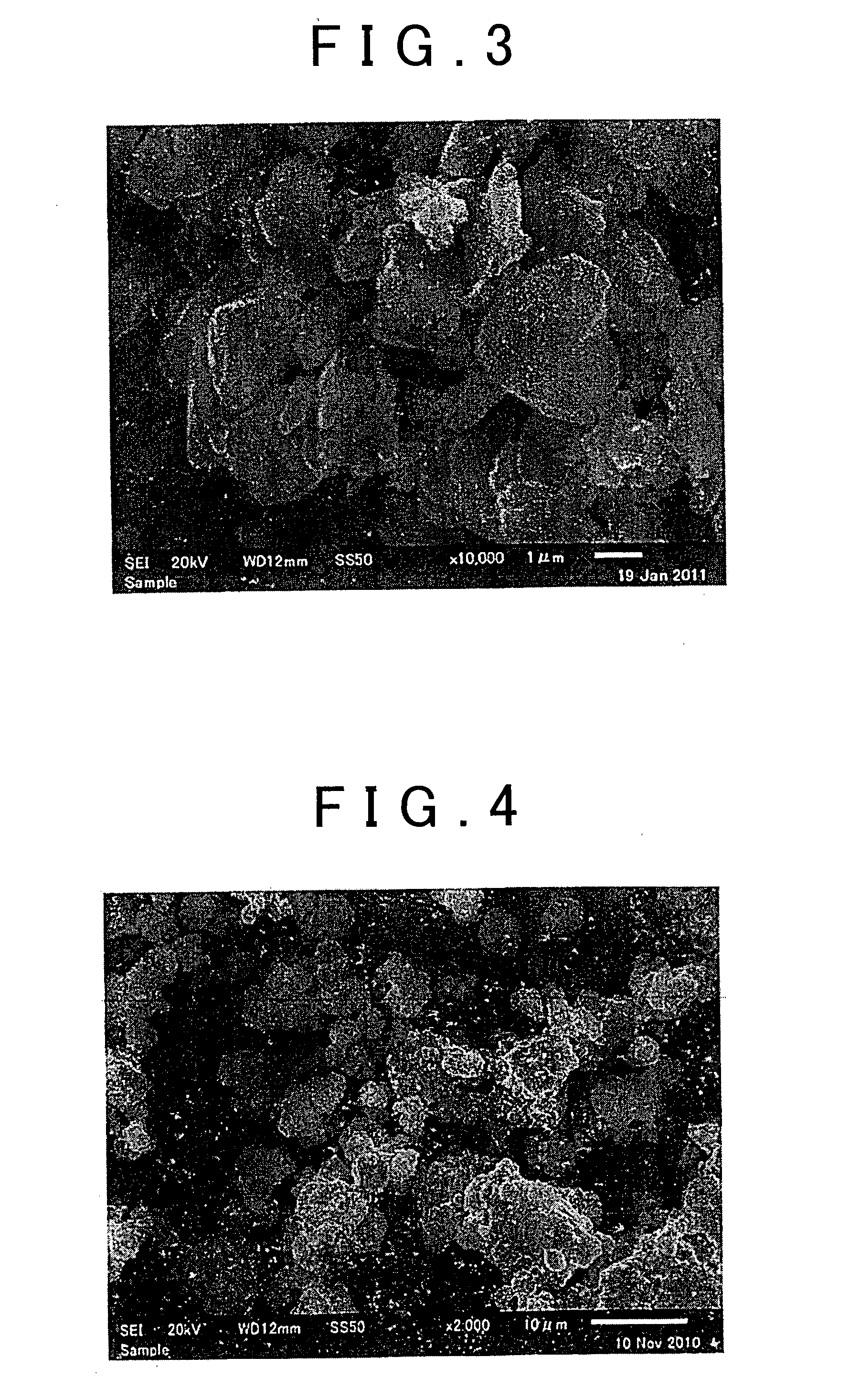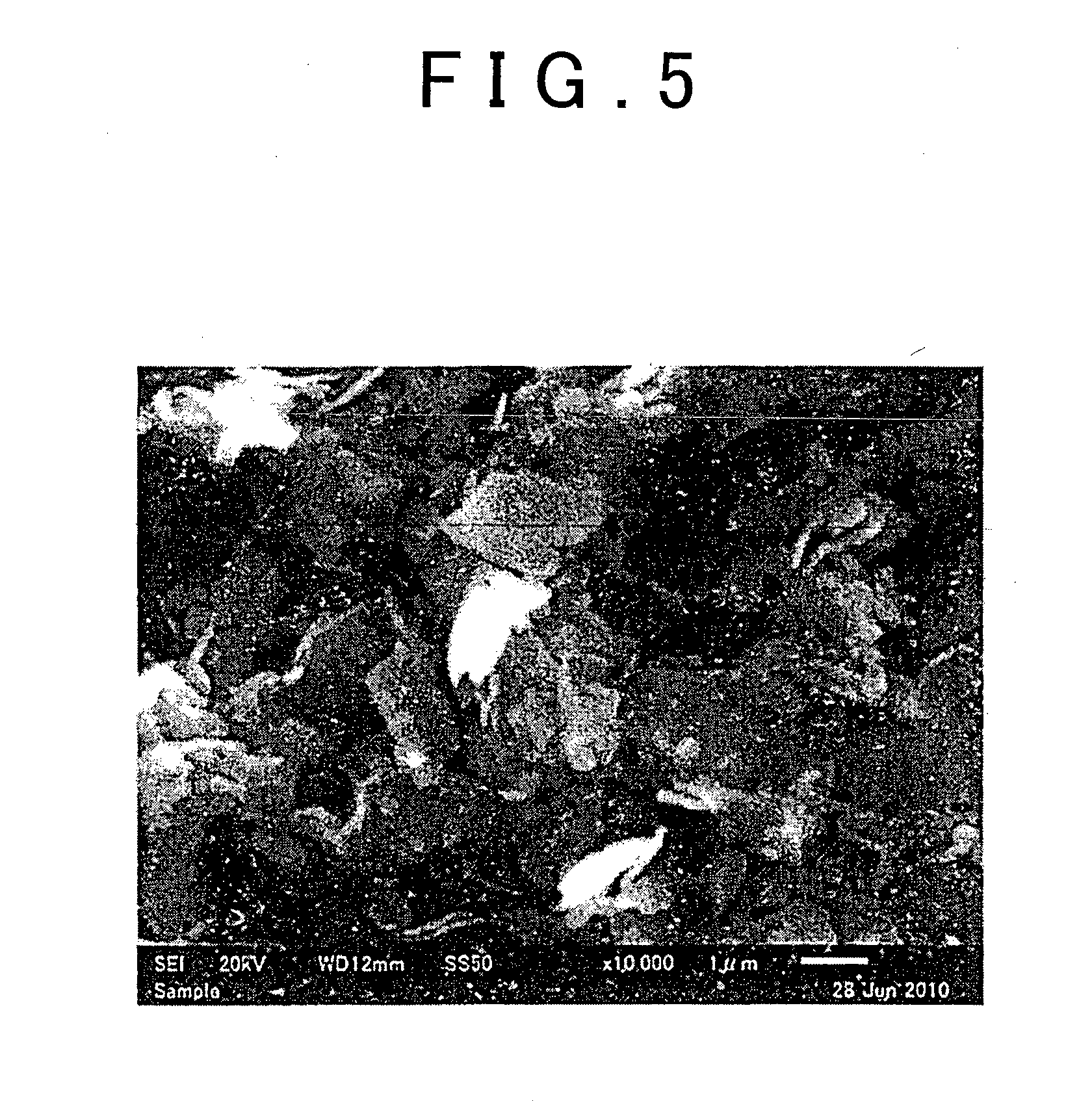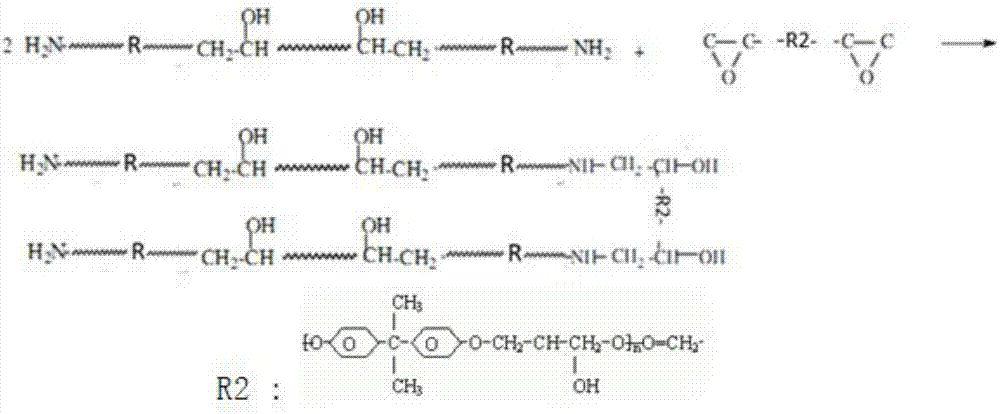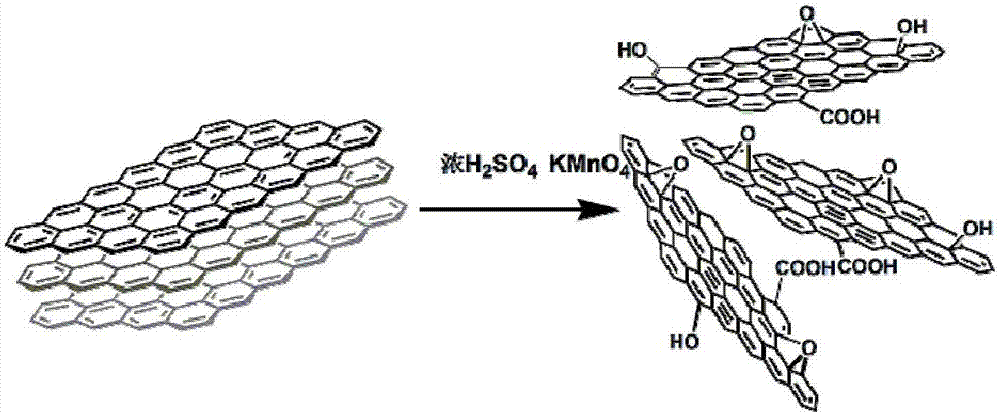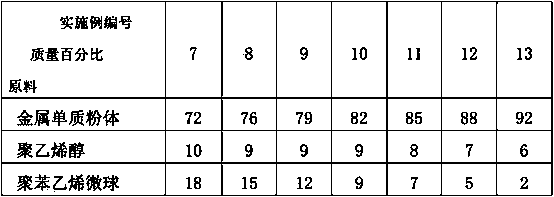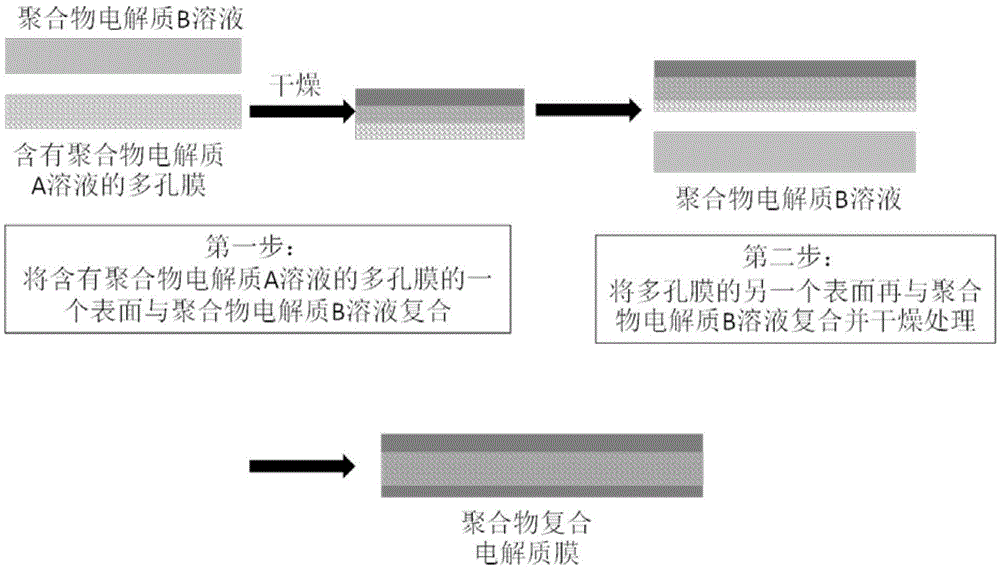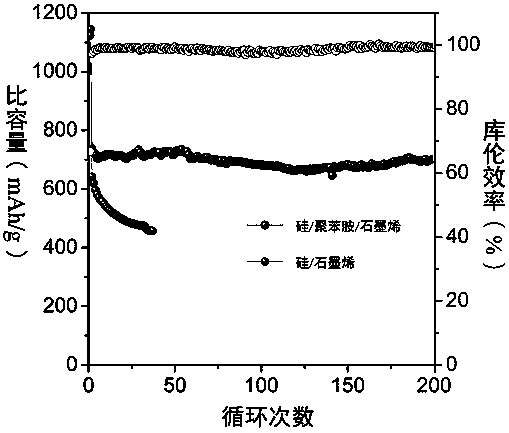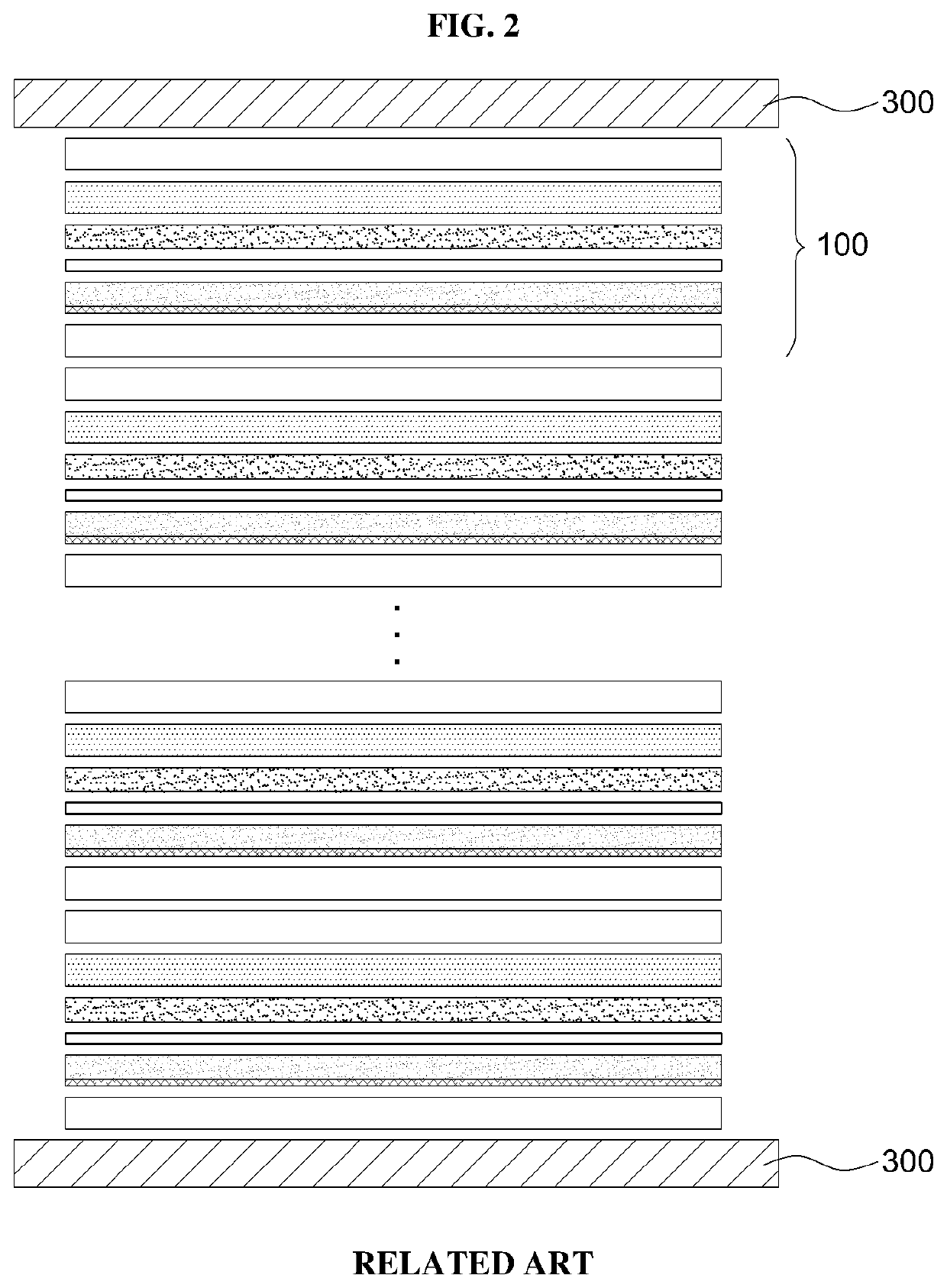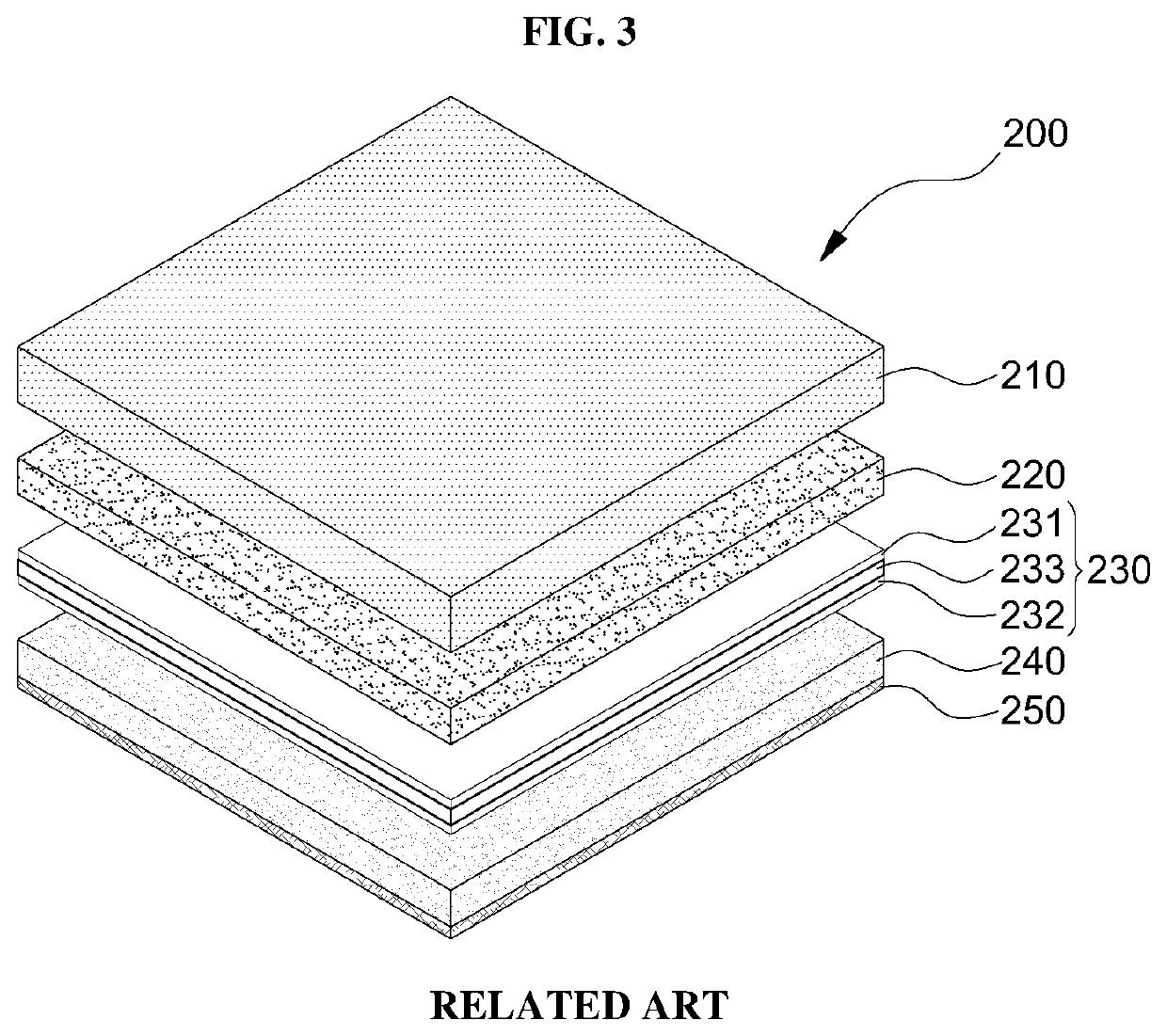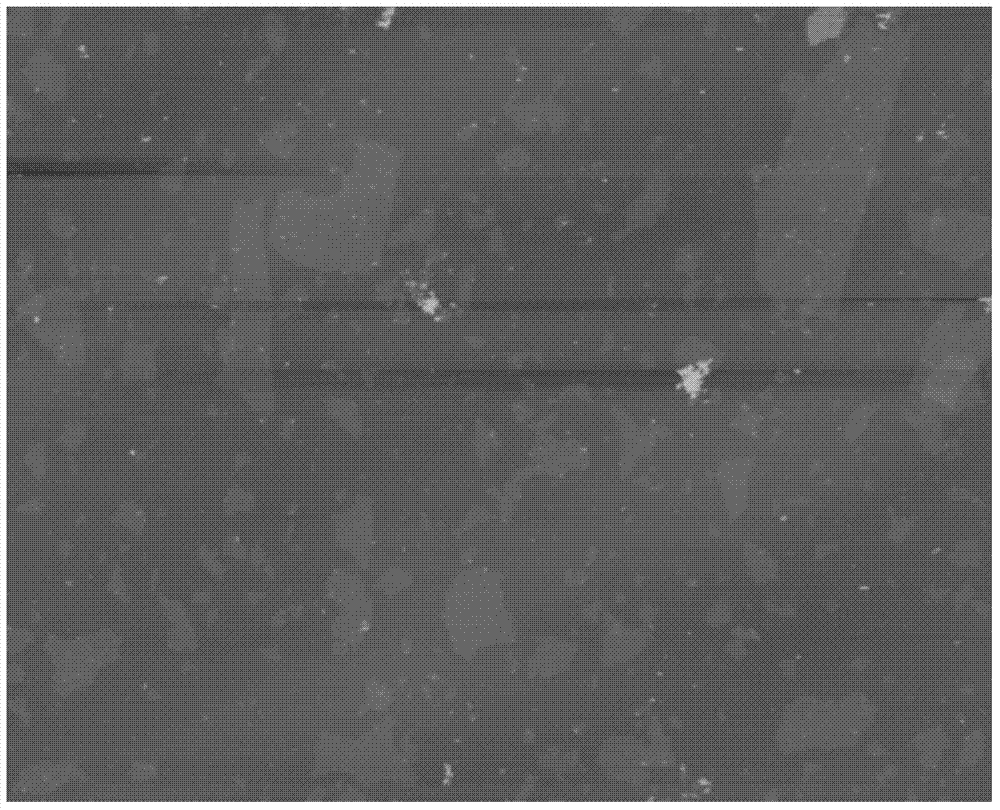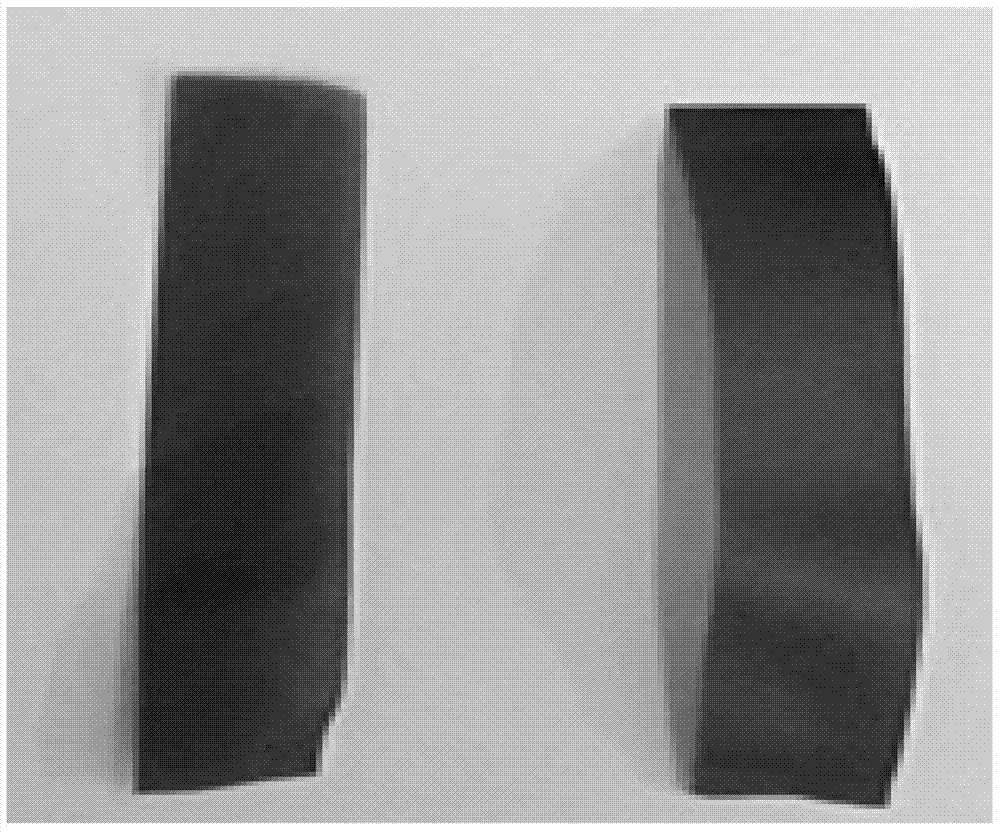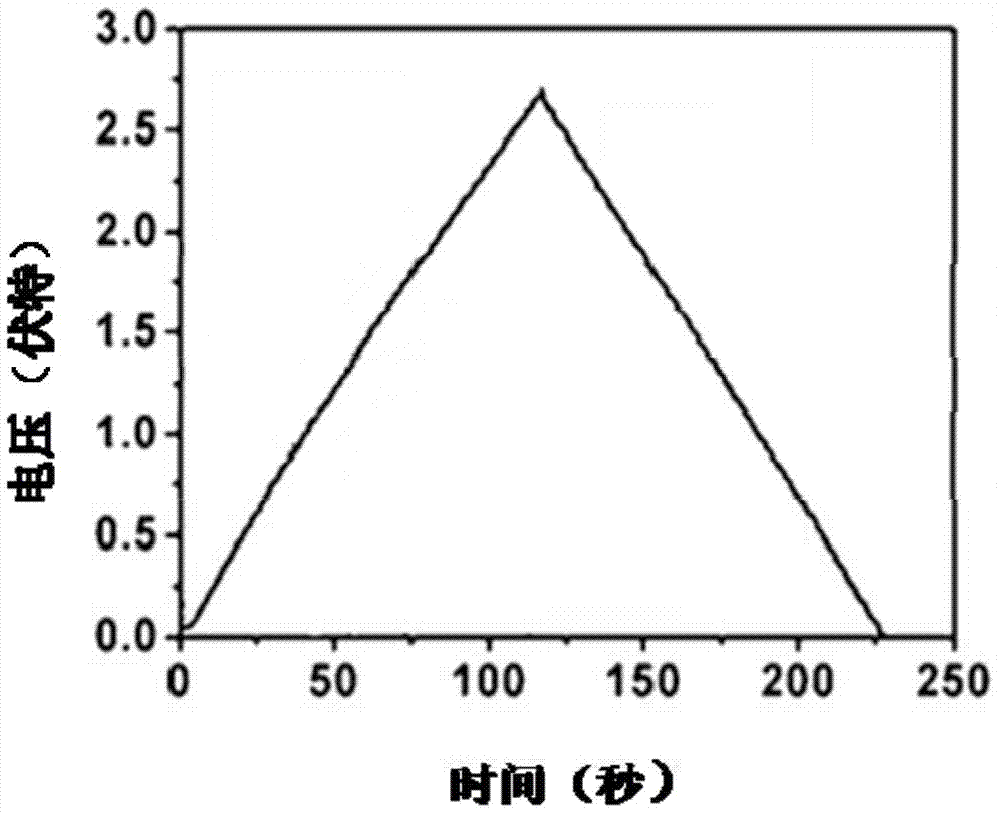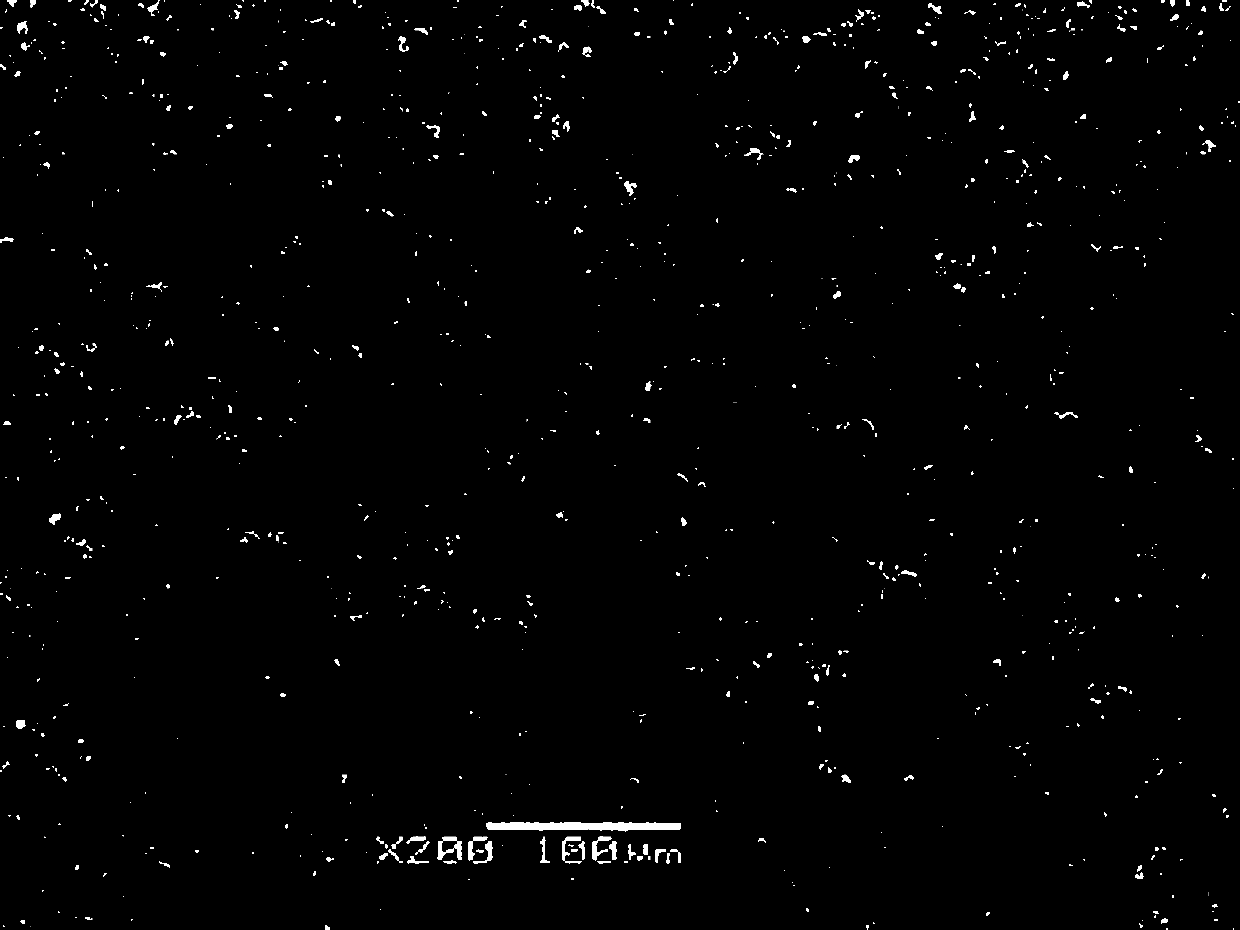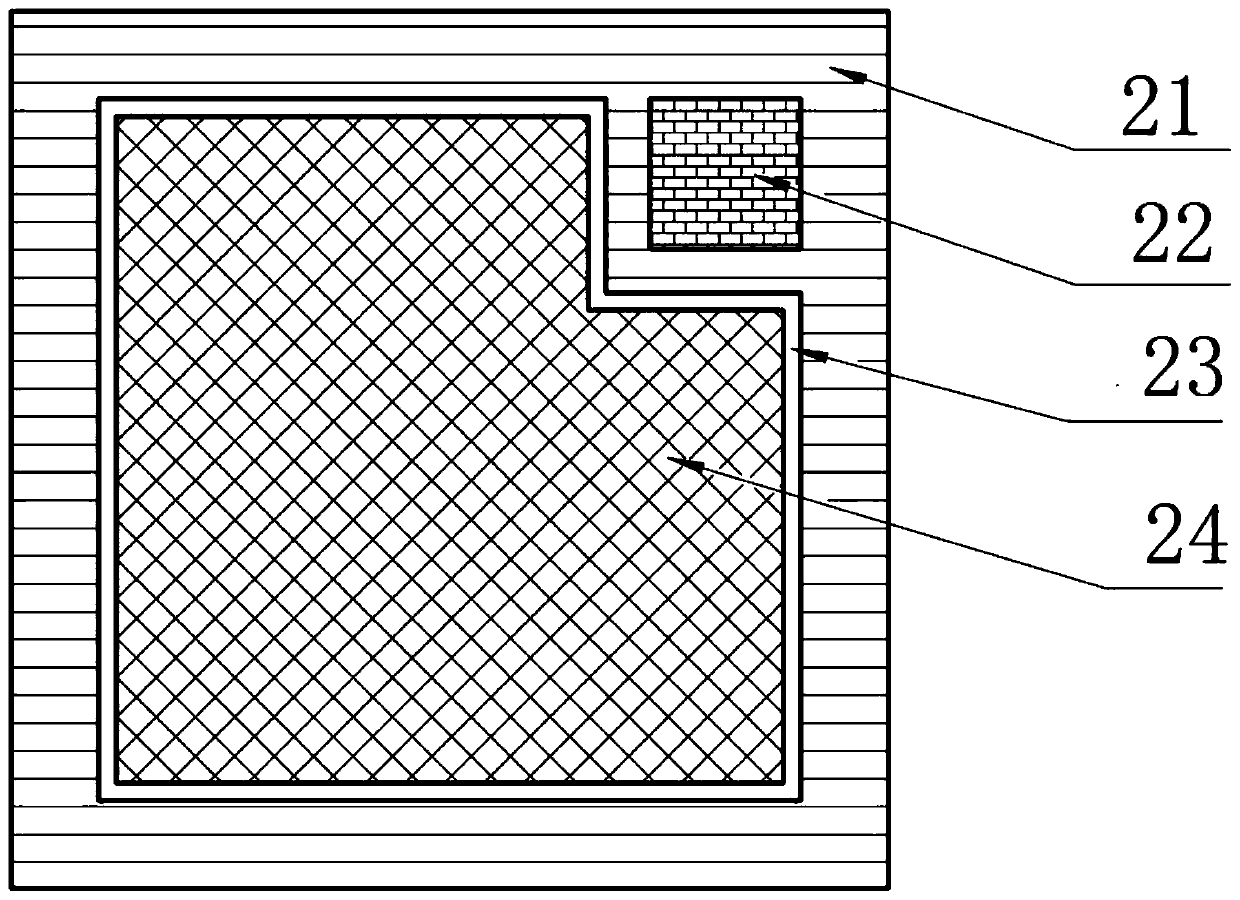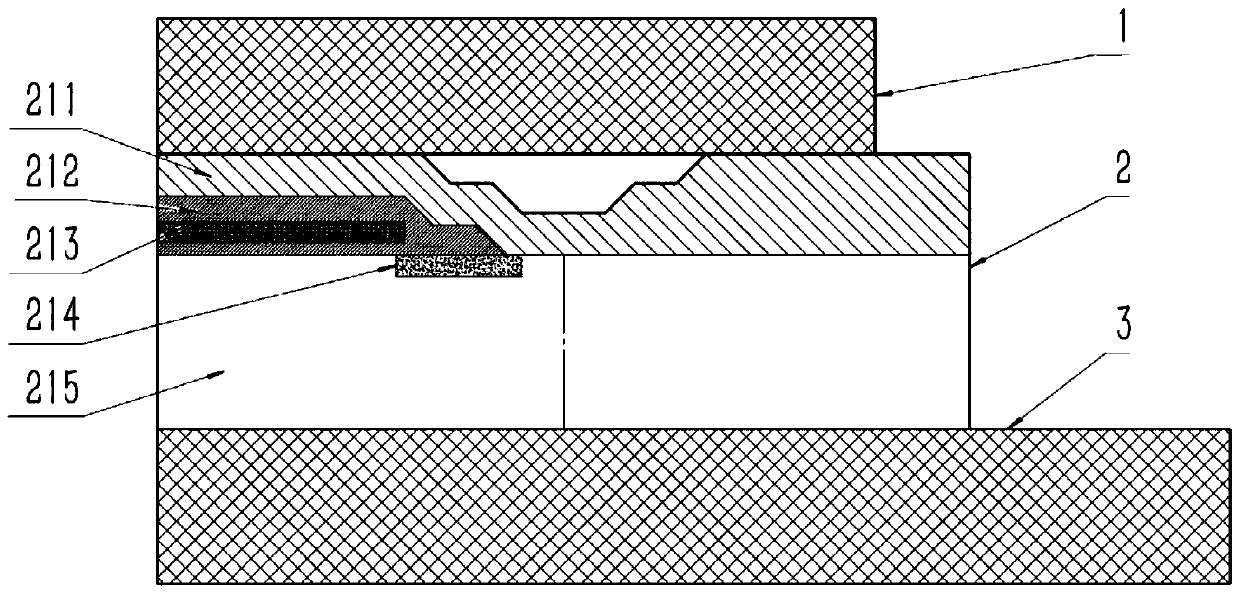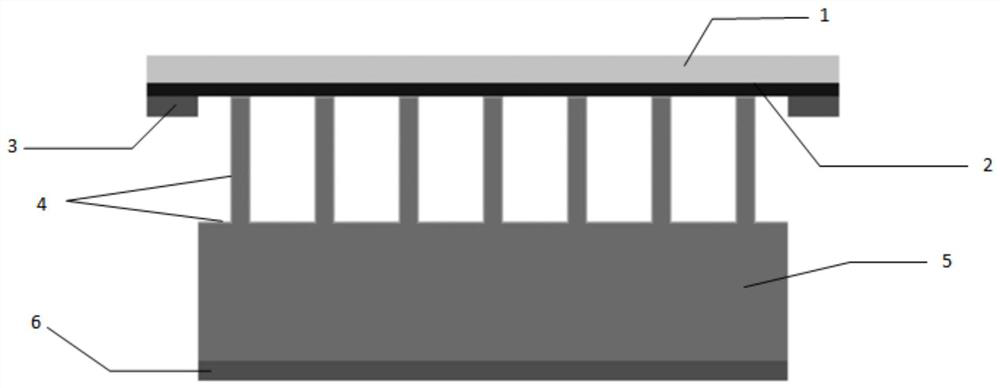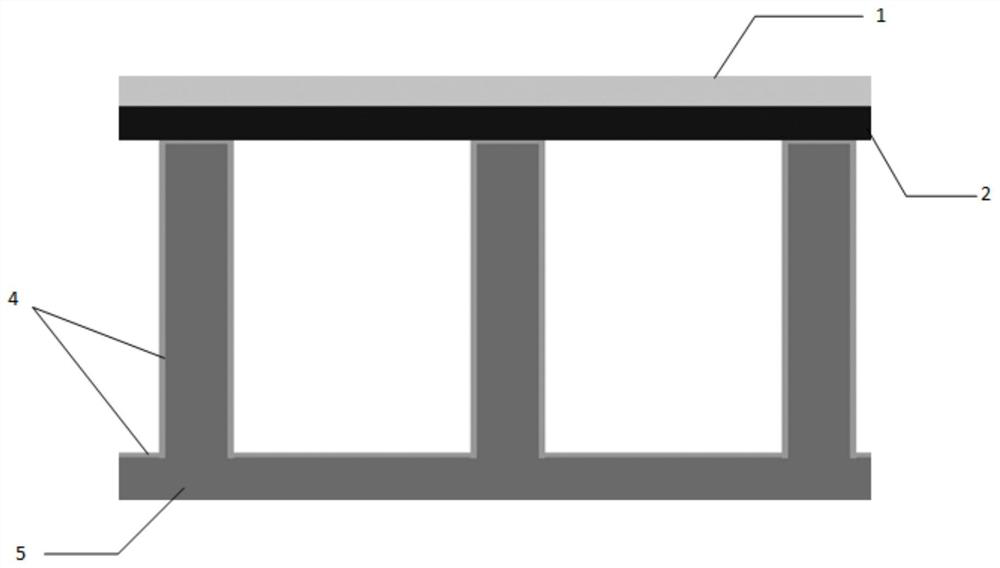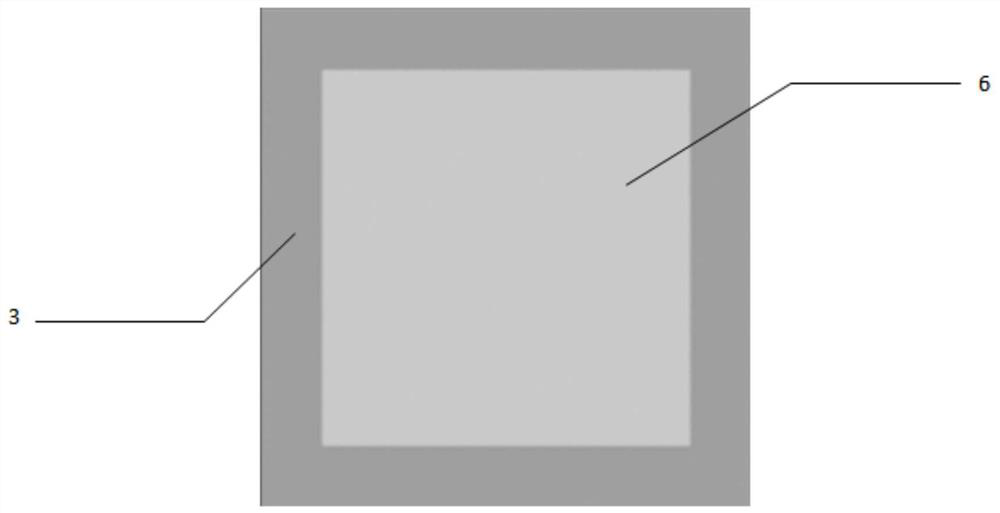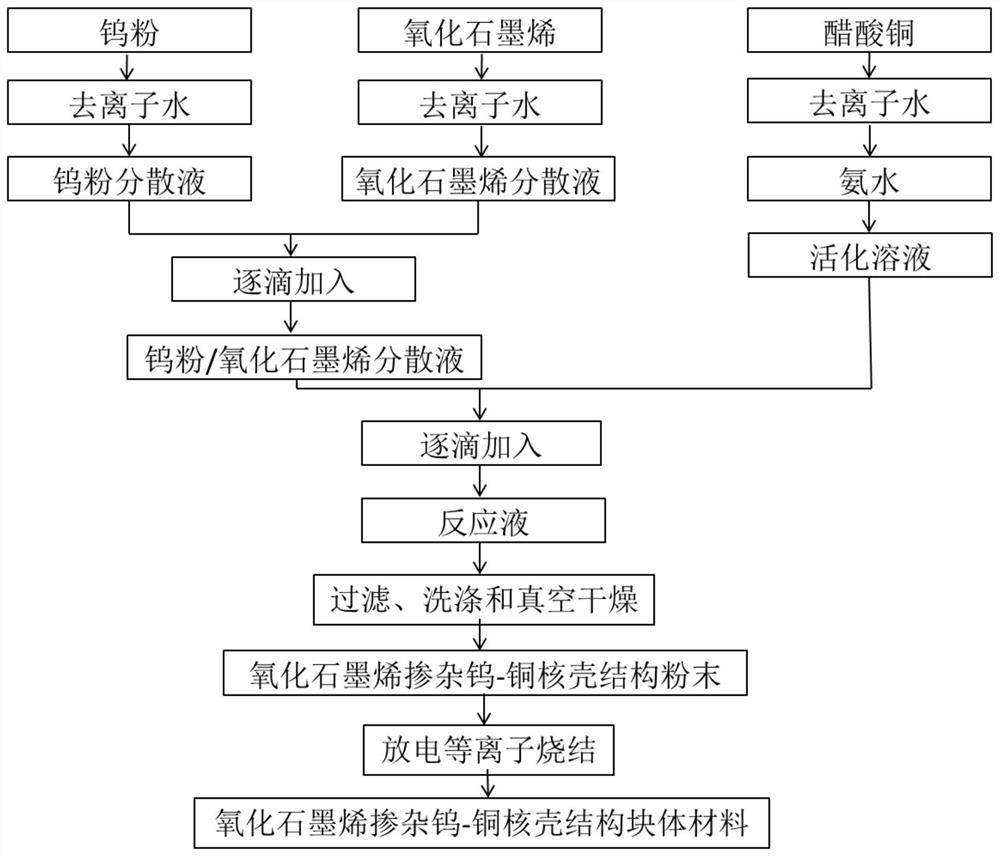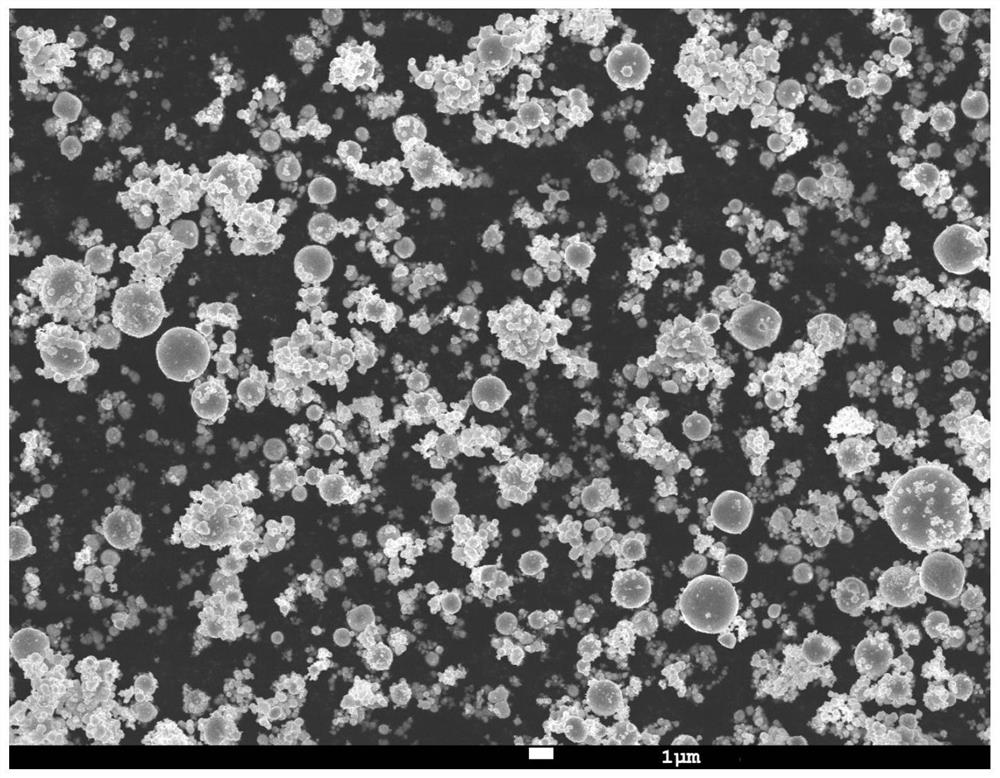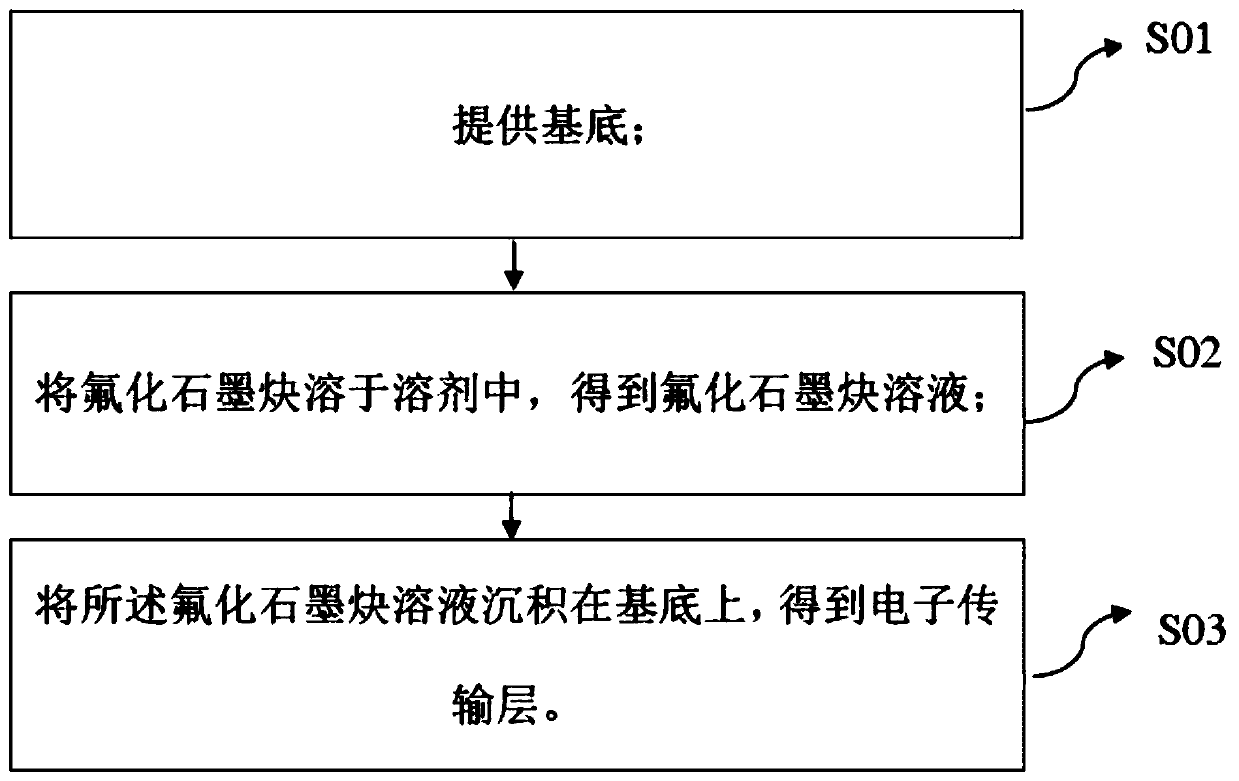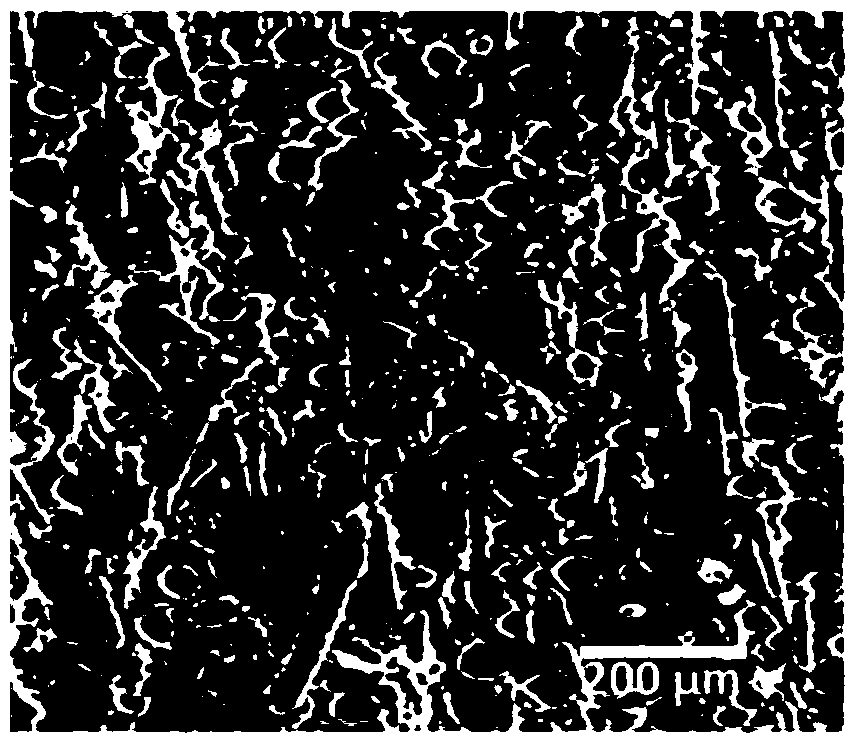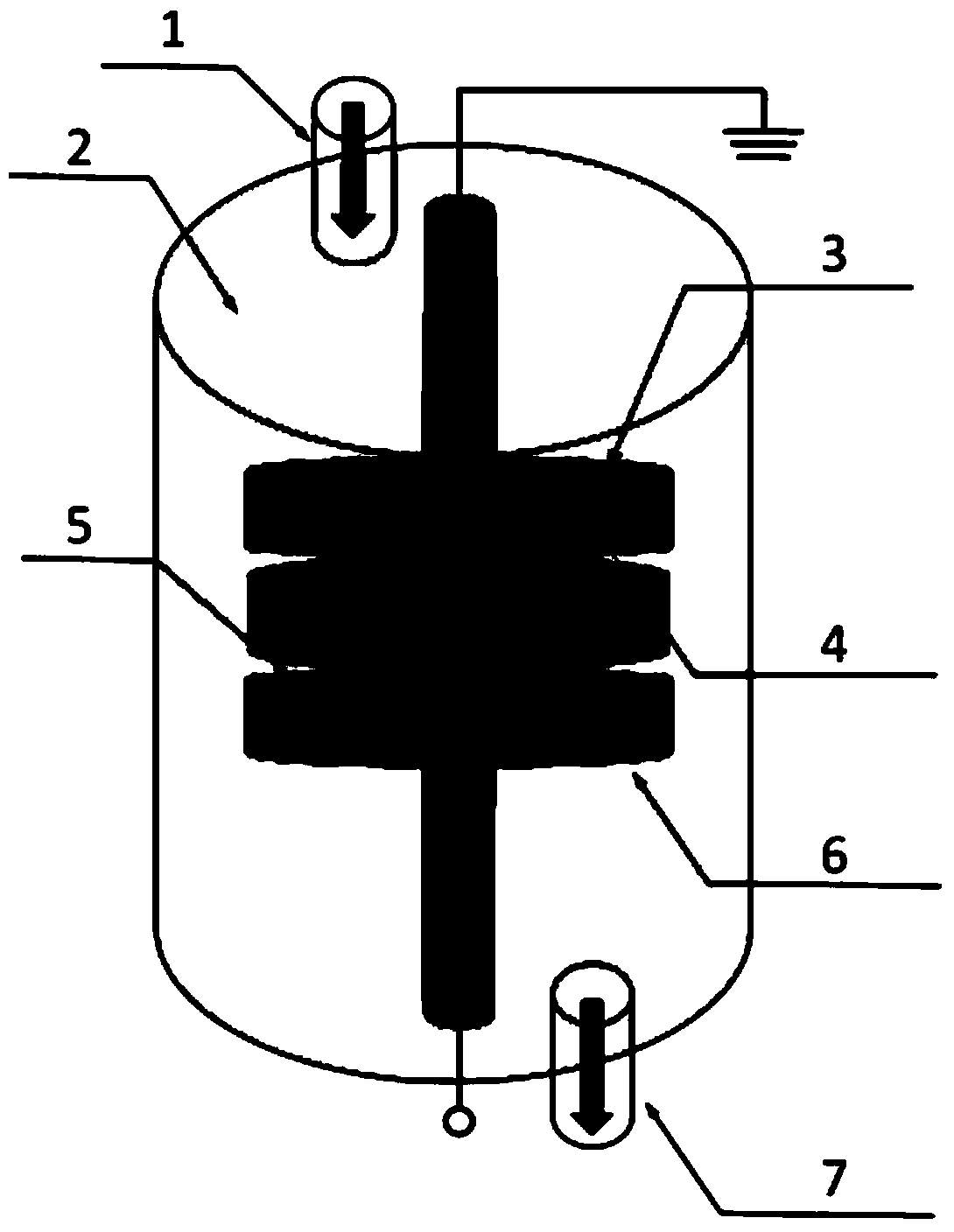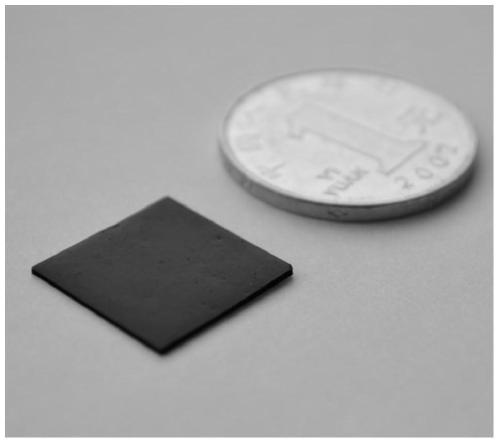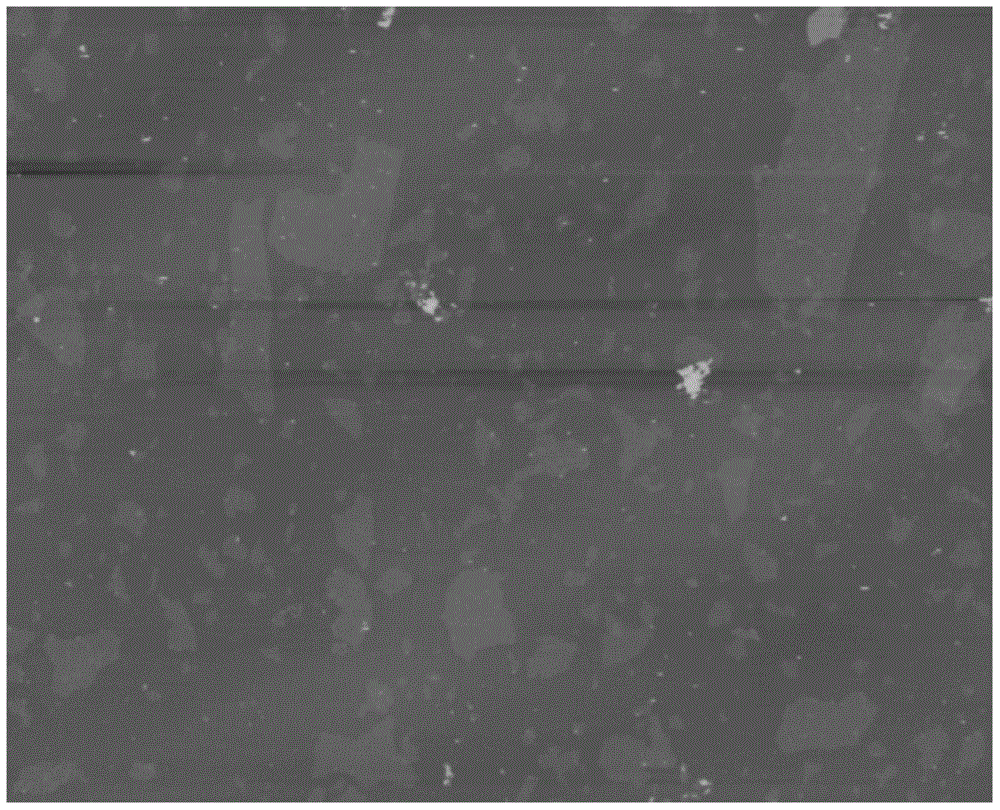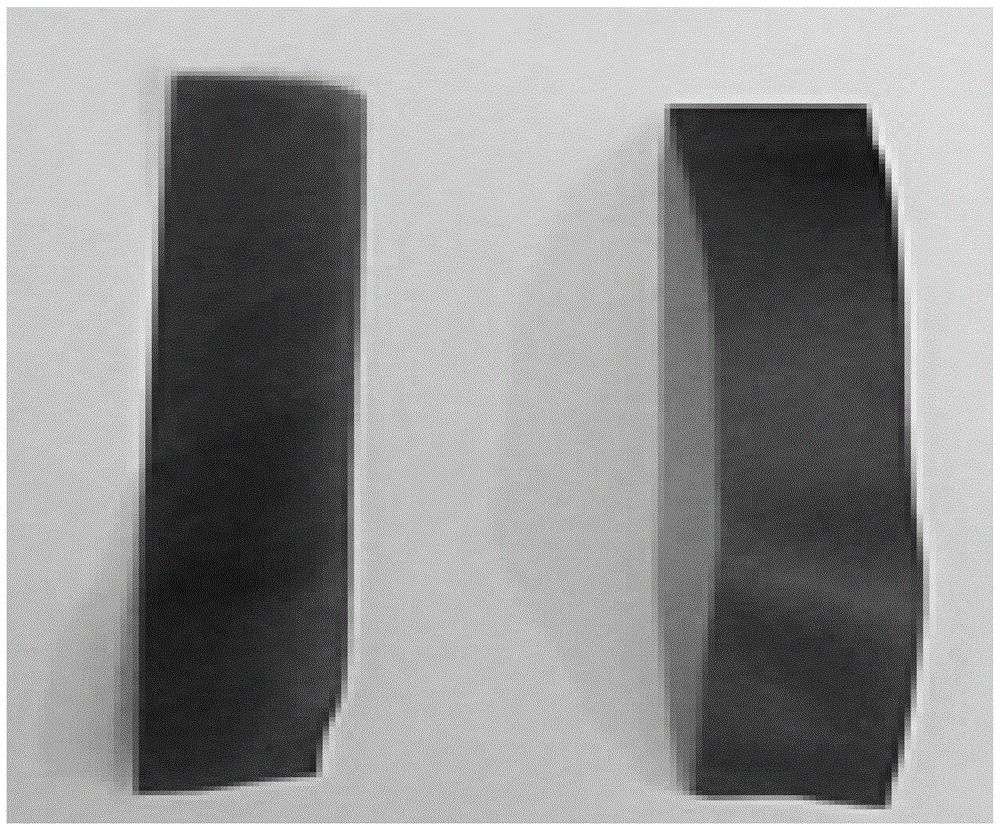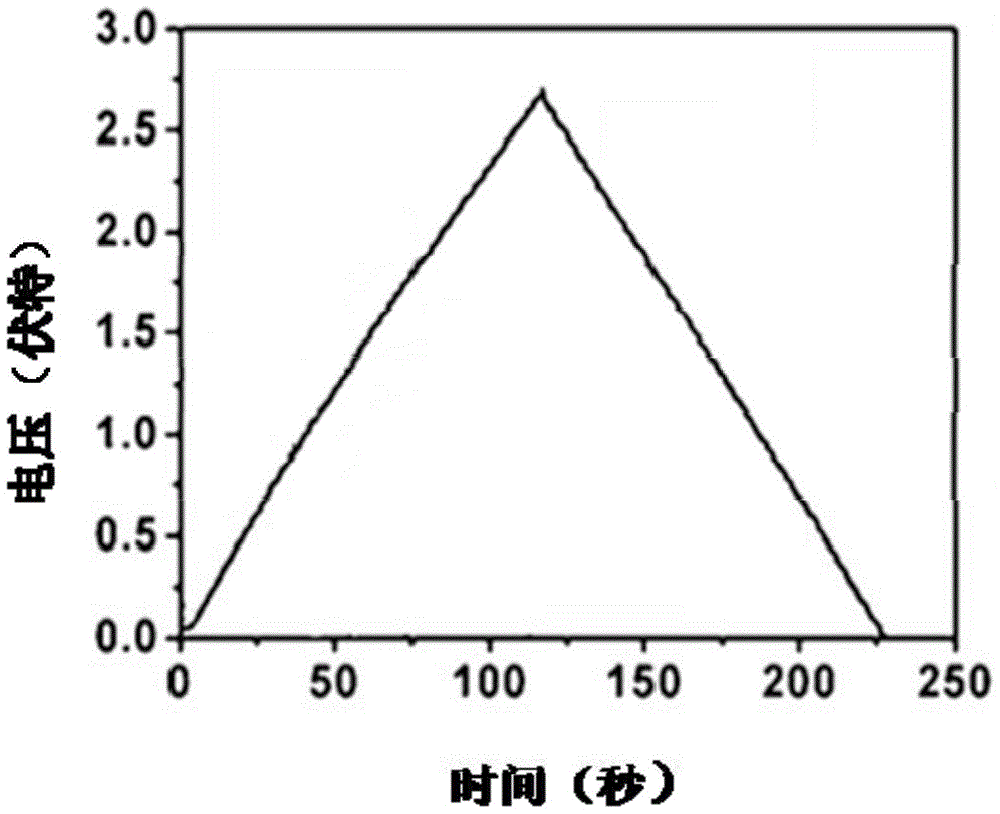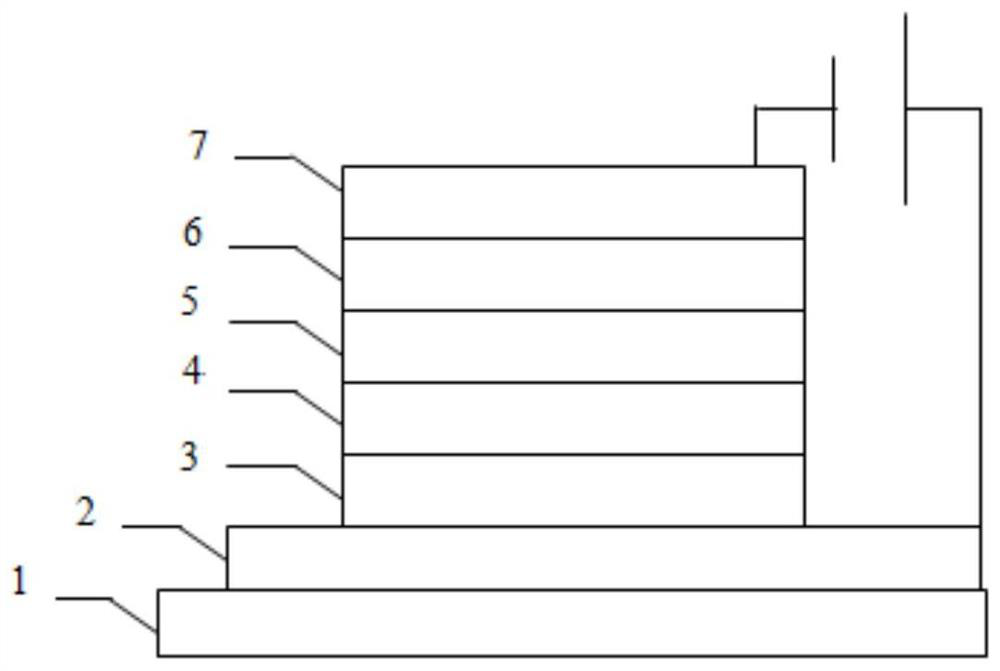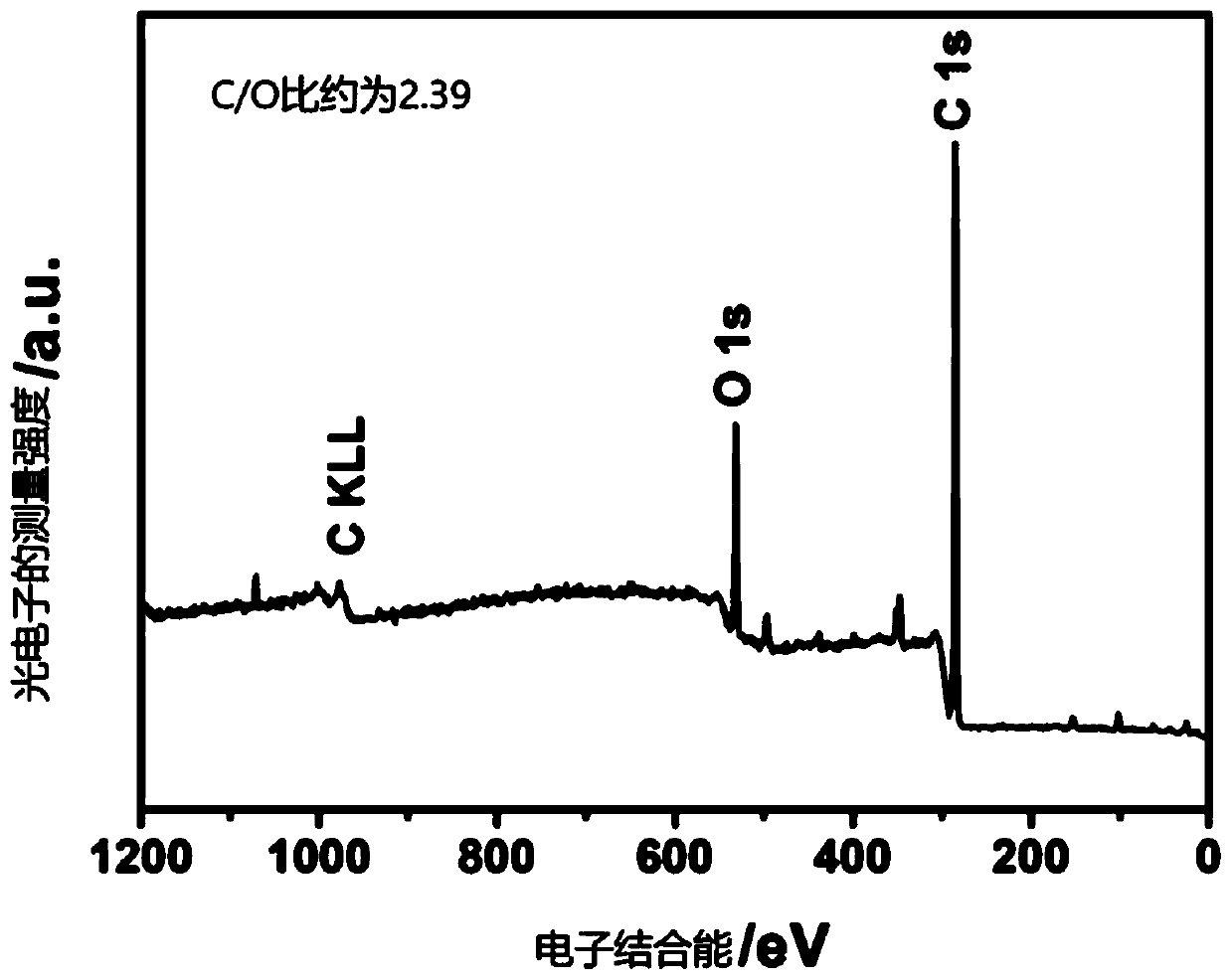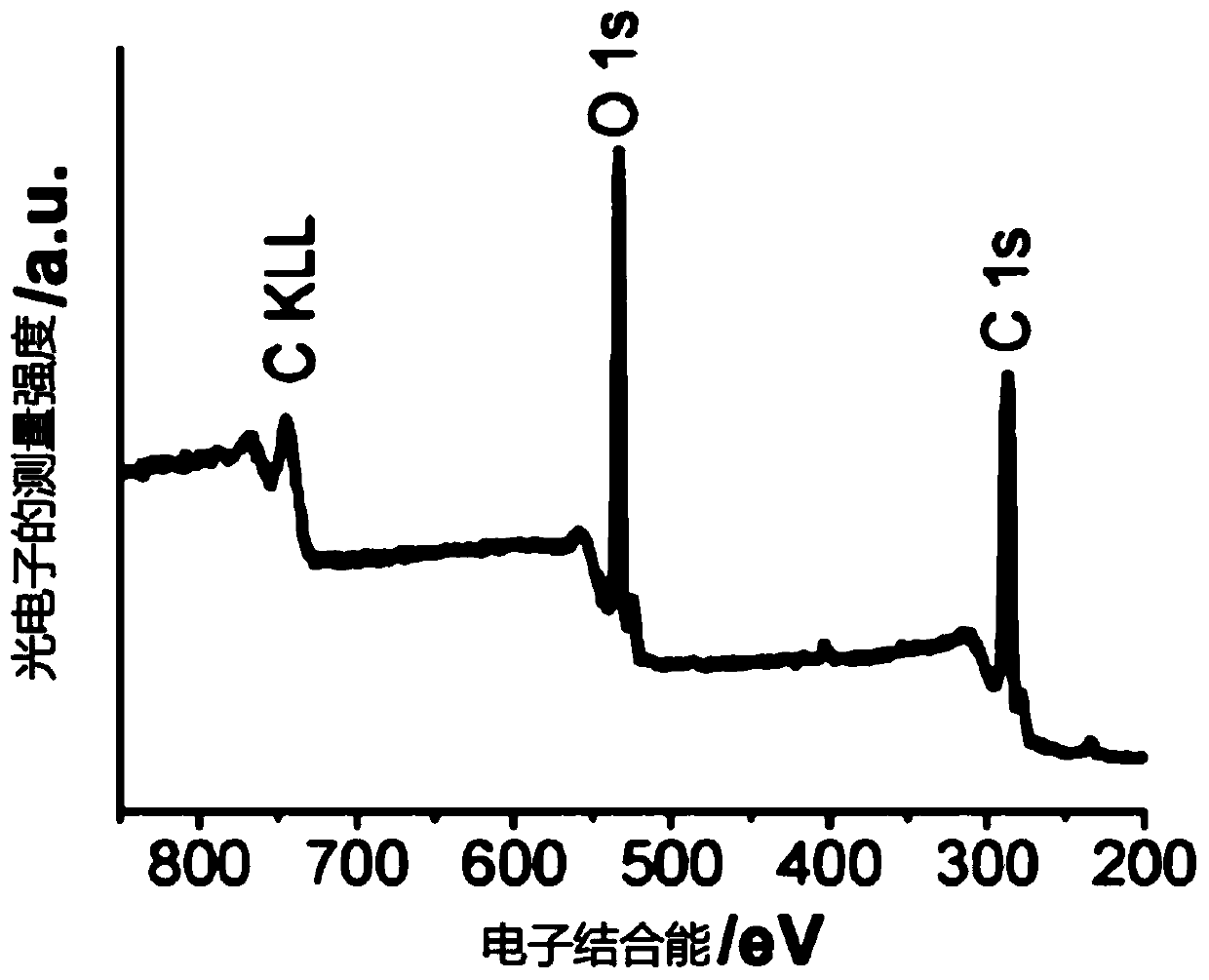Patents
Literature
Hiro is an intelligent assistant for R&D personnel, combined with Patent DNA, to facilitate innovative research.
42results about How to "Retain conductivity" patented technology
Efficacy Topic
Property
Owner
Technical Advancement
Application Domain
Technology Topic
Technology Field Word
Patent Country/Region
Patent Type
Patent Status
Application Year
Inventor
Method of producing solid sulfide electrolyte material and solid sulfide electrolyte material
InactiveUS20140093785A1Improve lithium ion conductivityHigh yieldSolid electrolyte cellsElectrolytesElectrolytePolymer
Owner:TOYOTA JIDOSHA KK
Graphene-waterborne epoxy high-dispersion system and synthetic method thereof
ActiveCN107353397AReduce usageReduce manufacturing costAnti-corrosive paintsEpoxy resin coatingsCvd grapheneAddition chain
The invention relates to a synthetic method of a graphene-waterborne epoxy high-dispersion system. The method comprises steps as follows: step 1, glycidyl ether type epoxy resin and double-end amino micromolecular amine are subjected to an addition chain extension reaction, and an amino-terminated hydrophilic polyether chain segment is obtained; step 2, the amino-terminated hydrophilic polyether chain segment and a macromolecular epoxy group are subjected to an addition chain extension reaction, and an amino-terminated long-chain non-ionic self-emulsifying epoxy curing agent is obtained; step 3, low-oxidation graphene is prepared with an ultrasonic assisted Hummers method; step 4, the non-ionic self-emulsifying epoxy curing agent and low-oxidation graphene are subjected to a covalent grafting modification reaction, and the graphene-waterborne epoxy high-dispersion system is obtained. The synthetic method has the advantages as follows: the long-chain non-inoic self-emulsifying epoxy curing agent is grafted on the surface of graphene through a nucleophilic opening ring reaction, re-agglomeration of a graphene sheet layer is inhibited to a certain extent, the electric conductivity of graphene is retained, and the comprehensive mechanical performance and modulus of the graphene-waterborne epoxy high-dispersion system are improved effectively.
Owner:江苏丰彩建材(集团)有限公司 +1
Preparation method for low-density porous metal material
The invention discloses a preparation method for a low-density porous metal material. The preparation method is characterized by comprises the following steps: according to mass percent, taking raw materials of 70-95% of metal elementary substance powder, 5-10% of polyvinyl alcohol and 0-20% of polystyrene microsphere; preparing the polyvinyl alcohol into a polyvinyl alcohol aqueous solution with the mass percent concentration of 5-10%; adding the polystyrene microsphere into the polyvinyl alcohol aqueous solution, adding the metal elementary substance powder, stirring and mixing uniformly to obtain a pulp material; pouring the pulp material into a tubular pillar polytetrafluoroethylene tube mould, freezing, drying, molding and demoulding; placing a dried material into a pipe furnace with flowing inert atmosphere, and sintering at the temperature of 400-500 DEG C for 2-6 h to obtain the low-density porous metal material. The porous metal prepared by the preparation method has a relative density which can be as low as 5%; most part of the metal is through-hole; the hole diameters have the characteristic of bimodal distribution; the poriness and the microstructure are uniform and adjustable, and a certain mechanical strength is achieved.
Owner:SOUTHWEAT UNIV OF SCI & TECH
Graphene-molybdenum disulfide composite conductive paste for lithium battery and preparation method thereof
InactiveCN106384827AGood dispersionIncreased Surface Area UtilizationCell electrodesHigh pressureSolvent
The invention provides graphene-molybdenum disulfide composite conductive paste for lithium battery and a preparation method thereof. The method comprises the following steps of: blending a lithium ion or magnesium ion salt, molybdenum disulfide and graphite particles, heating at a high temperature, so that the lithium ion or magnesium ion is intercalated between the graphite and molybdenum disulfide layers; cooling to room temperature, fusing into a solvent, ultrasonically precrushing, thereby obtaining a mixture; ejecting the mixture through a jet nozzle of a high voltage pulse jet machine, and performing further crushing and stripping on the graphite and molybdenum disulfide by utilizing the mechanical shearing and high-speed collision effects of particles, thereby obtaining the graphene-molybdenum disulfide composite conductive paste. According to the composite conductive paste and the preparation method thereof provided by the invention, nanolayers can be effectively prevented from being stacked again, the surface area utilization rate of the electrode material is improved, and the electrical conductivity of the positive and negative poles of the lithium ion battery is greatly improved.
Owner:张家口龙驰科技有限公司
Preparation method for polymer composite electrolyte membrane
ActiveCN106816617ARetain conductivityImprove conductivitySolid electrolytesConductive materialPorous membranePolymer composites
The invention discloses a preparation method for a polymer composite electrolyte membrane. The preparation method comprises the following steps: compounding a porous membrane containing a low-viscosity polymer electrolyte A solution and a high-viscosity polymer electrolyte B solution. The viscosity of the solution is controlled, and the polymer composite electrolyte membrane prepared by the preparation method has a high filling ration and low surface roughness, so that the comprehensive performances of the polymer electrolyte are greatly improved, and the application prospect is clearer.
Owner:TORAY ADVANCED MATERIALS RES LAB CHINA
Conductive coating for plastic surface
InactiveCN109161273AImprove conductivityRetain conductivityAnti-corrosive paintsElectrically-conductive paintsFiberWater based
The invention provides conductive coating for a plastic surface. The conductive coating for the plastic surface comprises the following components in parts by weight: 60 to 70 parts of water-based acrylic acid resin, 10 to 30 parts of water-based alkyd resin, 3 to 10 parts of modified graphene, 2 to 6 parts of sodium alginate, 1 to 3 parts of coupling agent, 6 to 12 parts of ethanol, 1 to 2 partsof polypyrrole nanometer fiber, 2 to 6 parts of ethylene-vinyl acetate copolymer, 0.6 to 2.4 parts of dispersing agent, 0.1 to 1 part of defoaming agent and 80 to 160 parts of deionized water, whereinthe modified graphene is mainly prepared from graphene, maleic acid, chitosan, zinc oxide, tin chloride and phenyl-methyl amine. The conductive coating for the plastic surface has excellent electricconductivity and also has high salt spray corrosion resistance.
Owner:安庆市泽烨新材料技术推广服务有限公司
Preparation method of negative electrode material silicon-based material/polyaniline/graphene composite material, and product and application thereof
InactiveCN109659541ABuffer volume expansion effectImprove electronic conductivityMaterial nanotechnologyCell electrodesConductive polymerSize change
The invention provides a preparation method of a negative electrode material silicon-based material / polyaniline / graphene composite material, and a product and an application thereof. The compounding of organic and inorganic materials is realized by coating a silicon-based material with conductive polymer polyaniline, the outer surface is coated with graphene oxide through polyelectrolyte modification, and then the graphene oxide is reduced by adopting hydrazine hydrate to obtain the silicon-based material / polyaniline / graphene composite material. The conductive polymer polyaniline in the intermediate layer is far superior to a carbon material in terms of mechanical toughness, and can better buffer the huge size change of silicon during charge and discharge processes. The graphene on the outer layer greatly increases the electrical conductivity of the system. The material integrates the advantages of high specific capacity of silicon, high toughness of polyaniline, good electrical conductivity of graphene and the like, has the advantages of excellent cycle and rate performance, maintains the specific capacity at 710 mAh g<-1> after 200 cycles under the current density of 500 mAh g<-1>, and can be widely used in the field of negative electrode materials for automotive power lithium batteries.
Owner:SHANGHAI NAT ENG RES CENT FORNANOTECH
Lithium-air battery and method of manufacturing the same
InactiveUS20200058957A1Reduce weightIncrease energy densityFuel and secondary cellsCell seperators/membranes/diaphragms/spacersPolymer electrolytesElectrolytic agent
Disclosed are a lithium-air battery and a method of manufacturing the same. The weight of the battery may be reduced and the energy density thereof may be improved by eliminating two separators, which are stacked on a gas diffusion layer and a current collector in the related art, and by using two kinds of gel polymer electrolyte membranes, each including a gelled polymer matrix impregnated with an electrolyte, as a separation membrane. The volatilization, leakage or bias of the electrolyte may be prevented by restricting the fluidity of the electrolyte. In addition, the capacity and lifespan of the battery may be increased.
Owner:HYUNDAI MOTOR CO LTD +1
Preparation method of high-conductivity metal net load graphene current collector
InactiveCN108899553AImprove conductivityImprove antioxidant capacityElectrode carriers/collectorsElectrical batteryGraphene
The invention discloses a preparation method of a high-conductivity metal net load graphene current collector, and belongs to the field of batteries. A battery current collector comprises a metal netand a graphene material, wherein graphene is stably loaded on the metal net. The battery current collector has the performance of improving the conductivity due to the import of the graphene. The battery current collector provided by the invention has highly enhanced conductivity and is capable of enhancing the performance to a certain extent.
Owner:CHINA UNIV OF GEOSCIENCES (BEIJING)
Flexible graphene conductive electrode, preparation method, application and flexible bendable super-capacitor
ActiveCN104332631AImprove performanceIntegrityHybrid capacitor electrodesCell electrodesElectrical batteryGas phase
The invention discloses a flexible graphene conductive electrode, a preparation method, an application and a flexible bendable super-capacitor. The conductive electrode is prepared through following steps: (1) preparing a graphene thin sheet from a graphite material through an electronic intercalation-gas phase stripping method; and (2) preparing the flexible graphene conductive electrode from the graphene thin sheet in a manner of solution self-assembly. The flexible graphene conductive electrode has two-dimensional material performances of graphene materials, maintains a carbon-carbon lattice structure of a graphite flake and integrity of a planar electronic structure, retains a conductivity thereof, is free of a conductive agent for enhancing the performance thereof, can be directly used as an electrochemical energy storage apparatus, such as an cathode electrode and an electrode material in a super-capacitor, is free of addition of any additives and usage of a metal substrate, can reduce manufacturing cost of the electrochemical energy storage apparatus, and greatly increases energy density and power density of a lithium ion battery and the super-capacitor.
Owner:深圳博磊达新能源科技有限公司
Conductive anticorrosive coating
InactiveCN109161274ARetain conductivityHigh resistance to salt sprayAnti-corrosive paintsEpoxy resin coatingsEpoxyAcrylic resin
The invention provides conductive anticorrosive coating. The conductive anticorrosive coating comprises the following components in parts by weight: 65-75 parts of hydroxyl acrylic resin, 10-30 partsof epoxy resin, 1-3 parts of modified graphene, 4-8 parts of carbon nanotubes, 0.6-2.4 parts of a dispersing agent, 2-4 parts of a curing agent, 0.1-0.4 part of a preservative, 0.1-1 part of a defoaming agent and 80-160 parts of a solvent, wherein the modified grapheme is prepared mainly from graphene, citric acid, chitosan, conductive carbon black, tin chloride and phosphorus oxychloride; the preservative is a mixture of isothiazolinone and aluminum tripolyphosphate. The conductive anticorrosive coating not only has very good corrosion resistance, but also has improved adhesion.
Owner:安庆市泽烨新材料技术推广服务有限公司
Polyimide fiber far infrared emission paper and preparation method thereof
ActiveCN109183513AImprove mechanical propertiesHigh mechanical strengthSpecial paperPaper/cardboardFiberCarbon nanotube
The invention provides a preparation method of polyimide fiber far infrared emission paper, wherein the preparation method comprises the following steps: mixing polyimide fiber slurry, a carbon nanotube dispersion liquid, polyacrylate and cationic polyacrylamide to obtain mixed slurry; coating a single side of the substrate with the mixed slurry, curing, and forming a curing layer on the single side of the substrate; and peeling the substrate, and carrying out hot press molding of the obtained curing layer, to obtain the polyimide fiber far infrared emission paper. The polyimide and carbon nanotube slurry is coated, hot-pressed and molded, and the polyimide fiber far-infrared emission paper is obtained; not only are good electric conductivity and far-infrared emission performance of the carbon nanotubes retained, but also good mechanical properties of polyimide are retained. As a far-infrared emitter, the emission far-infrared wavelength is 4-18 [mu]m, and the conversion efficiency ofelectric energy radiation can reach 90% or more.
Owner:河南克莱威纳米碳材料有限公司
Magnesium and lithium alloy surface compound oxidation treatment method
ActiveCN110983415AImprove corrosion resistanceImprove electromagnetic shielding performanceAnodisationMicro arc oxidationMetallurgy
The invention belongs to the technical field of magnesium and lithium alloy surface treatment and particularly relates to a magnesium and lithium alloy surface compound oxidation treatment method. Themethod includes the steps that surface cleaning pretreatment is conducted on a magnesium and lithium alloy firstly; then the magnesium and lithium alloy is put into an electric conduction oxidation solution to generate an electric conduction oxidation film, and a special tool is adopted for protecting the position, wherein an electric conduction layer needs to be reserved, of the magnesium and lithium alloy; and then micro-arc oxidation treatment is conducted, micro-arc oxidation treatment is conducted with the magnesium and lithium alloy adopted as the anode and a stainless steel plate adopted as the cathode, a porcelain compact layer is formed, and an electric conduction oxidation micro-arc oxidation film coating is obtained. Local electric conductivity of a part is reserved due to theobtained coating, and meanwhile corrosion resistance is also greatly improved.
Owner:郑州轻研合金科技有限公司
Preparation method of super-dispersed graphene
InactiveCN110562969AAvoid destructionRetain structureCarbon compoundsDispersityElectrochemical response
The invention discloses a preparation method of super-dispersed graphene, and belongs to the technical field of carbon materials. The preparation method comprises the following steps: mixing graphene,water and polystyrene sulfonate, freezing and squeezing to obtain primarily treated graphene; mixing the primarily treated graphene, absolute ethyl alcohol, a fatty acid and a titanate, performing heating reflux reaction, adding a surfactant and butanedinitrile, performing ball milling and mixing, washing and drying to obtain secondarily treated graphene; mixing the secondarily treated graphene with an adhesive, spin-coating an obtained mixture on the surface of a copper foil, performing high-temperature reaction with diborane, and cooling to obtain a copper foil / graphene composite material;and then carrying out electrochemical reaction by taking a sodium hydroxide solution as an electrolyte, platinum as an anode and the copper foil / graphene composite material as a cathode to separate the copper foil from the graphene, collecting the electrolyte, filtering, washing and drying to obtain the super-dispersed graphene. The product obtained by the invention has good dispersity and uniformity.
Owner:姚丹旭
Packaging structure of power MOSFET chip
PendingCN111477683AReduce damageImproved compression performance and reliabilitySemiconductor/solid-state device detailsSolid-state devicesEngineeringPower level
The invention discloses a packaging structure for a power MOSFET chip. The structure comprises the MOSFET chip which comprises a grid electrode and a source electrode on the front surface and a drainelectrode on the back surface, a first electric conductor which is electrically connected with the drain electrode on the back surface of the MOSFET chip, and a second electric conductor which is electrically connected with the source electrode on the front surface of the MOSFET chip through crimping packaging. A stress buffer area is arranged in the area, occupying the front surface of the MOSFETchip, of the source electrode, and the edge, making contact with the source electrode, of the second electric conductor is located in the stress buffer area. The part, corresponding to the stress buffer area, of the MOSFET chip does not contain a cellular structure. By additionally arranging the stress buffer area on the source electrode of the MOSFET chip, the damage of the edge stress concentration of the second electric conductor to the cellular structure in the MOSFET chip can be remarkably reduced, and the compression resistance and the reliability of the MOSFET chip are greatly improved. Meanwhile, the double-sided heat dissipation capacity is reserved, which improves the power level of a device.
Owner:GLOBAL ENERGY INTERCONNECTION RES INST CO LTD
Photoelectric detector based on PtSe2 and silicon nanorod array and preparation method of photoelectric detector
ActiveCN112885922ATake full advantage of the trapping effectImprove integration sensitivityFinal product manufactureVacuum evaporation coatingNanopillarGraphene electrode
The invention discloses a photoelectric detector based on PtSe2 and a silicon nanorod array and a preparation method of the photoelectric detector. The photoelectric detector comprises a PMMA light-transmitting protective layer, a transparent upper graphene electrode, a silicon nanopillar array structural body coated with few layers of PtSe2, and a metal electrode of the transparent upper graphene electrode and the silicon nanopillar array structural body. The preparation method comprises the following steps: preparing graphene by a CVD method; preparing a silicon nanopillar array structural body by dry etching; coating the surface of the silicon nanopillar array structure body with a few layers of PtSe2 by laser interference enhanced induction CVD; preparing the transparent upper graphene electrode; and plating the metal electrode through magnetron sputtering. The photoelectric detector prepared by the invention can realize detection in a range of visible light to near-infrared bands; and the silicon nanopillar array structure enhances the light absorption effect of the detector, so the detector has the advantages of high sensitivity, simple device structure and high practicability. Meanwhile, the preparation method can improve the performance of the detector, and has a relatively high popularization value.
Owner:XIAN TECH UNIV
Preparation method of graphene conductive ink
The invention provides a preparation method for improving performance of graphene conductive ink by using imidazole type ionic liquid. The preparation method is mainly characterized in that the imidazole type ionic liquid is utilized to improve the dispersibility of graphene in the ultrasonic blending process, and meanwhile, the ionic liquid has certain conductivity and can synergistically improvethe conductivity of the prepared graphene conductive ink. The preparation process comprises the steps of firstly dispersing epoxy resin and graphene in a solvent, and meanwhile, adding imidazole typeionic liquid to stir and ultrasonically treat for a certain time; and finally obtaining a series of graphene conductive ink with excellent conductivity by adjusting the proportion of various substances. According to the method provided by the invention, excessive treatment on graphene is not required, and a series of graphene conductive inks with different conductive performances are finally obtained by adjusting the dosage of the imidazole type ionic liquid. The preparation process has the advantages of being relatively simple in process, suitable for various matrixes and the like.
Owner:BEIJING UNIV OF CHEM TECH
Preparation method of graphene oxide doped tungsten-copper core-shell structure material
ActiveCN113020588AHigh densityImprove mechanical propertiesNuclear energy generationTransportation and packagingChemical platingNano copper
The invention discloses a preparation method of a graphene oxide doped tungsten-copper core-shell structure material. The preparation method comprises the following steps: 1, preparing a tungsten powder dispersion liquid and a graphene oxide dispersion liquid from tungsten powder and graphene oxide; 2, adding the graphene oxide dispersion liquid into the tungsten powder dispersion liquid; 3, preparing an activation solution from copper acetate, deionized water and ammonia water; 4, dropwise adding the activated solution into the tungsten powder / graphene oxide dispersion liquid; 5, carrying out filtering, washing and vacuum drying on a reaction liquid; and 6, performing spark plasma sintering on the graphene oxide doped tungsten-copper core-shell structure powder to obtain the graphene oxide doped tungsten-copper core-shell structure material. According to the graphene oxide doped tungsten-copper core-shell structure material and the preparation method thereof, through in-situ chemical plating, the purpose that the surfaces of tungsten powder particles are evenly coated with nano-copper particles and the graphene oxide is doped is achieved, and the obtained graphene oxide doped tungsten-copper core-shell structure material is a nanocrystalline composite material and has the advantages of being excellent in interface wettability, high in mechanical property, good in heat-conducting property and high in density.
Owner:西安稀有金属材料研究院有限公司
Quantum dot light-emitting diode and preparation method thereof
ActiveCN111384253AReduced band gapWide band gapSolid-state devicesSemiconductor/solid-state device manufacturingLight-emitting diodeMaterials science
The invention belongs to the technical field of display, and particularly relates to a quantum dot light emitting diode and a preparation method thereof. The quantum dot light-emitting diode comprisesan anode, a cathode and a quantum dot light-emitting layer located between the anode and the cathode, wherein an electron transport layer is further arranged between the cathode and the quantum dot light-emitting layer, and the electron transport layer is made of graphdiyne fluoride. The graphdiyne fluoride is applied to the electron transport layer of the quantum dot light-emitting diode device,thereby not only having the advantage of high electron transport efficiency, but also having high matching degree with the quantum dot light-emitting layer, and finally improving the light-emitting performance of the device.
Owner:TCL CORPORATION
A polyolefin polymer barrier explosion-proof material and its preparation method
The invention belongs to the technical field of high-molecular materials, and especially relates to a preparation method for a polyolefin-kind high-molecular obstruction explosion-proof material. The method comprises fully drying polyolefin, a fire retardant, an antistatic agent, a flexibilizer and various auxiliary agents, uniformly mixing in a high-speed mixer, then adding into a screw-combined co-rotating conical twin-screw extruder with an appropriate length-diameter ratio, setting the extruder temperature to be 160-280 DEG C, performing cooling and heating processing, then sending into a slitting system, and cutting into an obstruction explosion-proof polyethylene material pellet with a fixed length, so as to prepare the obstruction explosion-proof material which is cheap in price, easy to process and excellent in performances.
Owner:JIANGSU AMPUTE EXPLOSION PREVENTION TECH
A kind of polyimide fiber far-infrared emission paper and preparation method thereof
ActiveCN109183513BImprove mechanical propertiesHigh mechanical strengthSpecial paperPaper/cardboardFiberCarbon nanotube
The invention provides a preparation method of polyimide fiber far infrared emission paper, wherein the preparation method comprises the following steps: mixing polyimide fiber slurry, a carbon nanotube dispersion liquid, polyacrylate and cationic polyacrylamide to obtain mixed slurry; coating a single side of the substrate with the mixed slurry, curing, and forming a curing layer on the single side of the substrate; and peeling the substrate, and carrying out hot press molding of the obtained curing layer, to obtain the polyimide fiber far infrared emission paper. The polyimide and carbon nanotube slurry is coated, hot-pressed and molded, and the polyimide fiber far-infrared emission paper is obtained; not only are good electric conductivity and far-infrared emission performance of the carbon nanotubes retained, but also good mechanical properties of polyimide are retained. As a far-infrared emitter, the emission far-infrared wavelength is 4-18 [mu]m, and the conversion efficiency ofelectric energy radiation can reach 90% or more.
Owner:河南克莱威纳米碳材料有限公司
A kind of preparation method of super high strength concrete
ActiveCN107353397BRetain conductivityInhibition of reunionAnti-corrosive paintsEpoxy resin coatingsHigh strength concreteUltrasonic assisted
The invention relates to a synthetic method of a graphene-waterborne epoxy high-dispersion system. The method comprises steps as follows: step 1, glycidyl ether type epoxy resin and double-end amino micromolecular amine are subjected to an addition chain extension reaction, and an amino-terminated hydrophilic polyether chain segment is obtained; step 2, the amino-terminated hydrophilic polyether chain segment and a macromolecular epoxy group are subjected to an addition chain extension reaction, and an amino-terminated long-chain non-ionic self-emulsifying epoxy curing agent is obtained; step 3, low-oxidation graphene is prepared with an ultrasonic assisted Hummers method; step 4, the non-ionic self-emulsifying epoxy curing agent and low-oxidation graphene are subjected to a covalent grafting modification reaction, and the graphene-waterborne epoxy high-dispersion system is obtained. The synthetic method has the advantages as follows: the long-chain non-inoic self-emulsifying epoxy curing agent is grafted on the surface of graphene through a nucleophilic opening ring reaction, re-agglomeration of a graphene sheet layer is inhibited to a certain extent, the electric conductivity of graphene is retained, and the comprehensive mechanical performance and modulus of the graphene-waterborne epoxy high-dispersion system are improved effectively.
Owner:江苏丰彩建材(集团)有限公司 +1
Nano-carbon conductive high-toughness black masterbatch and preparation method thereof
The invention discloses a nanocarbon conductive high-toughness black masterbatch and a preparation method thereof, the nanocarbon conductive high-toughness black masterbatch is prepared from resin, acarbon conductive composition and a modifier, the pipe diameter of a carbon nanotube in the carbon conductive composition is 50-300nm, the pipe diameter ratio is 300-600, and the DBP absorption valueof carbon black is 150 *10 <-5>-210 *10<-5> M<3> / kg. According to the nano-carbon conductive high-toughness black masterbatch and the preparation method thereof provided by the invention, the carbon nanotubes are firstly subjected to pre-dispersion treatment, so that the later mixing uniformity is improved, the black masterbatch has extremely high conductivity and dispersity, the product has antistatic property and permanent retentivity, the resistance value is relatively low, and the mechanical properties of resin are greatly retained; and moreover, the temperature stability is good, the piezoresistive linearity is better, the dosage is small, the use of precise key equipment can be met, and the problems of slow response, short service life, large resistance and the like of the existing plastic electric conductor and the like are effectively solved.
Owner:茂康材料科技(常熟)有限公司
A swinging electromagnetic induction power generation flexible fabric and its production method and application
ActiveCN111636130BMeet the needs of useTo achieve the effect of power generationLayered productsFilament/thread formingYarnFiber
The invention discloses a swing electromagnetic induction type power generation flexible fabric, a production method and application thereof. The oscillating electromagnetic induction type power generation flexible fabric of the present invention includes magnetic yarn fabrics and conductive coil fabrics respectively located on the surfaces of two relative swinging parts; the magnetic yarn fabrics include magnetic yarn cores formed by composite fiber strips wrapping magnetic powder; the The conductive coil fabric is formed by embroidery of conductive silk core-spun yarn strands on the fabric substrate. In the present invention, the magnetic powder is evenly wrapped in the yarn, and a stable magnetic yarn fabric is prepared by a weaving method, and then used in combination with a conductive coil fabric containing conductive filaments to produce a flexible fabric that can generate electricity; Flexible fabrics can be applied to clothing, and use electromagnetic induction to convert the mechanical energy generated by the human body's arm swing / walking process into electrical energy, which ensures the softness of the clothing while realizing power generation, meets the needs of actual use, and has great application value.
Owner:HUAZHONG UNIV OF SCI & TECH +1
Preparation method of copper-steel composite material with authigenic copper-rich layer on steel surface
InactiveCN103952658AHigh strengthImprove toughnessSolid state diffusion coatingCopperUltimate tensile strength
The invention discloses a preparation method of a copper-steel composite material with an authigenic copper-rich layer on a steel surface. The problem about the bonding between the interfaces of a former externally added coating layer and a matrix is solved by means of spontaneously generating a copper-rich coating layer on the surface of a steel matrix. The preparation method comprises the following steps: corroding the surface of copper-containing steel, removing corrosion products, and treating the surface of the copper-steel composite material. According to the method, the copper-steel composite material with the copper-rich outer layer can be obtained without the means of externally adding a coating layer; as the coating layer is spontaneously generated by the matrix, the prepared copper-steel composite material does not have the problem about the bonding between the composite interfaces and the coating layer does not usually peel off; the prepared copper-steel composite material keeps not only the excellent properties such as high strength and good toughness of steel, but also the characteristics such as corrosion resistance and conductivity of copper; besides, the appearance of the composite material is attractive.
Owner:UNIV OF SCI & TECH LIAONING
Method for dyeing conductive polyester fiber
ActiveCN102619111BRetain conductivityHigh fastnessFibre typesDry-cleaning apparatus for textilesPolyesterFiber
Owner:TAICANG RONGWEN SYNTHETIC FIBER
A method for preparing vertical arrays of carbon nanotubes covered with flexible thin layers of carbon
ActiveCN107572504BSolve preparation difficultiesImprove thermal conductivityCarbon nanotubesPlasma depositionChemical vapor deposition
The invention specifically relates to a preparation method for a flexible vertically-aligned carbon nanotube array covered with thin-layer carbon, belonging to the field of preparation of flexible vertically-aligned carbon nanotube arrays. The preparation method comprises the following steps: depositing a thin layer of carbon on the surface of a substrate through plasma deposition; then growing carbon nanotubes by using a plasma-enhanced chemical vapor deposition method so as to obtain a composite structure of a vertically-aligned carbon nanotube array covered with the thin-layer carbon, wherein the thin-layer carbon located at the top allows the carbon nanotubes in the vertically-aligned array to be interconnected so as to guarantee that all the carbon nanotubes in the array participate in heat transfer; simply pressing the vertically-aligned array and peeling the vertically-aligned array from the substrate so as to obtain the self-supported flexible vertically-aligned carbon nanotubearray. The prepared self-supported flexible vertically-aligned carbon nanotube array has excellent thermal conductivity, good bendability and strong adhesion, and has good application prospects in the fields of flexible thermal interface materials and flexible energy storage materials.
Owner:INST OF METAL RESEARCH - CHINESE ACAD OF SCI
A flexible graphene conductive electrode, preparation method, application and flexible and bendable supercapacitor
ActiveCN104332631BImprove performanceIntegrityHybrid capacitor electrodesCell electrodesGas phaseLithium-ion battery
The invention discloses a flexible graphene conductive electrode, a preparation method, an application and a flexible bendable super-capacitor. The conductive electrode is prepared through following steps: (1) preparing a graphene thin sheet from a graphite material through an electronic intercalation-gas phase stripping method; and (2) preparing the flexible graphene conductive electrode from the graphene thin sheet in a manner of solution self-assembly. The flexible graphene conductive electrode has two-dimensional material performances of graphene materials, maintains a carbon-carbon lattice structure of a graphite flake and integrity of a planar electronic structure, retains a conductivity thereof, is free of a conductive agent for enhancing the performance thereof, can be directly used as an electrochemical energy storage apparatus, such as an cathode electrode and an electrode material in a super-capacitor, is free of addition of any additives and usage of a metal substrate, can reduce manufacturing cost of the electrochemical energy storage apparatus, and greatly increases energy density and power density of a lithium ion battery and the super-capacitor.
Owner:深圳博磊达新能源科技有限公司
Quantum dot light-emitting diode and its preparation method
ActiveCN111384253BReduced band gapWide band gapSolid-state devicesSemiconductor/solid-state device manufacturingQuantum dotHigh electron
The invention belongs to the field of display technology, and in particular relates to a quantum dot light-emitting diode and a preparation method thereof. A quantum dot light-emitting diode, comprising an anode, a cathode, and a quantum dot light-emitting layer between the anode and the cathode, an electron transport layer is also arranged between the cathode and the quantum dot light-emitting layer, and the electron The material of the transmission layer is graphyne fluoride. Such fluorinated graphyne is used in the electron transport layer of the quantum dot light-emitting diode device, which not only has the advantages of high electron transport efficiency, but also has a high degree of matching with the quantum dot light-emitting layer, and finally improves the light-emitting performance of the device.
Owner:TCL CORPORATION
Electricity-conductive graphene oxide, and preparation method and application thereof
The embodiment of the invention relates to the field of new materials, in particular to an electricity-conductive graphene oxide, and a preparation method and application thereof. According to the preparation method for the electricity-conductive graphene oxide provided by the invention, graphene oxide is partially oxidized and intercalated through reactions in a low-temperature stage and a medium-temperature stage; the graphene oxide is peeled by ultrasonic under an alkaline condition; the graphene oxide can be fully peeled without full oxidization of graphite; the temperature required by thereaction is low; and the electricity-conductive graphene oxide is safe and controllable. Moreover, the damage to conjugated structures caused by partial oxidation is relatively less; the original electricity conductivity of the graphite is also maintained as possible, so that the electricity-conductive graphene oxide prepared by the preparation method is only oxidized at a low degree; the oxidization degree is low; a lamellar structure is maintained relatively well and has electricity conductivity; and a single lamellar structure is dispersed stably in water. The electricity-conductive graphene oxide prepared by the preparation method has a potential application value in the fields of electricity-conductive composite materials and the like.
Owner:QINGDAO UNIV OF SCI & TECH
Features
- R&D
- Intellectual Property
- Life Sciences
- Materials
- Tech Scout
Why Patsnap Eureka
- Unparalleled Data Quality
- Higher Quality Content
- 60% Fewer Hallucinations
Social media
Patsnap Eureka Blog
Learn More Browse by: Latest US Patents, China's latest patents, Technical Efficacy Thesaurus, Application Domain, Technology Topic, Popular Technical Reports.
© 2025 PatSnap. All rights reserved.Legal|Privacy policy|Modern Slavery Act Transparency Statement|Sitemap|About US| Contact US: help@patsnap.com
